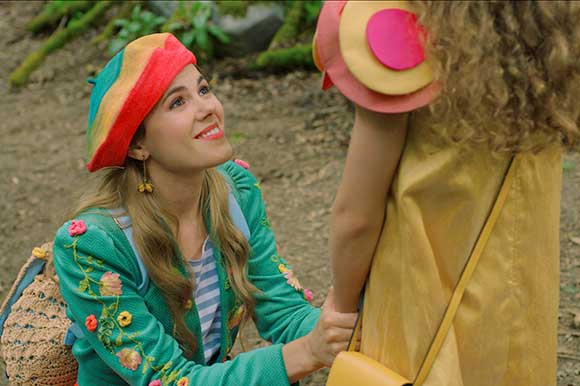
Market Analysis (21)
Czech Republic
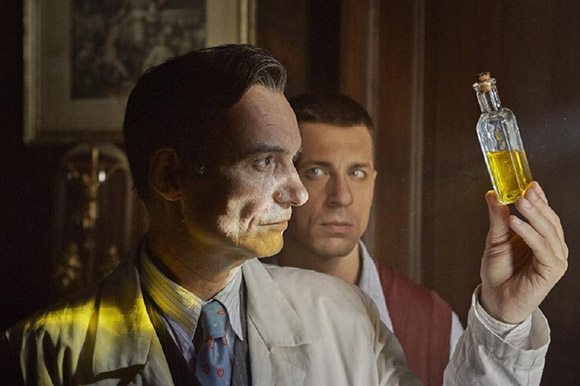 MARKET ANALYSIS 2020
MARKET ANALYSIS 2020
PRAGUE: Czech cinemas were closed from 10 March to 11 May 2020, and also from 12 October to the end of 2020, due to the Coronavirus pandemic. It was impossible to shoot during a brief period of time at the beginning of the crisis, but after necessary measures were taken, the film industry was able to produce even during the lockdown. However, according to the Czech Film Fund, the pandemic has caused “enormous losses on all fronts”.
The yearly statistics in all areas (except VoD) show considerable decrease compared to the record setting season of 2019. According to the Union of Film Distributors, there were 288,202 screenings in 2020, which is 46% less than in 2019. They were attended by 6,384,953 viewers (65% less than in 2019), resulting in 35 m EUR / 905,992,643 CZK gross.
The Czech/Polish/Slovak/Irish coproduction Charlatan / Šarlatán directed by Polish director Agnieszka Holland and produced by Marlene Film Production in coproduction with Film and Music Entertainment (Ireland), Madants (Poland), Furia Film (Slovakia), the Czech Television, Barrandov Studio and RTVS, was chosen by the Czech Film and Television Academy as the Czech candidate for the 92nd American Academy of Motion Picture Arts and Sciences Awards in the International Feature Film category. The film also won five Czech Lions – The Czech Film and Television Academy awards, including the award for best picture. Charlatan premiered at the Berlin IFF 2020.
Shadow Country / Krajina ve stínu by Bohdan Sláma, a Czech/Slovak coproduction produced by LUMINAR Film and coproduced by the Czech Television, Filmpark Production and i/o post, won the Czech Critics’ award for best picture, together with seven Czech Lions.
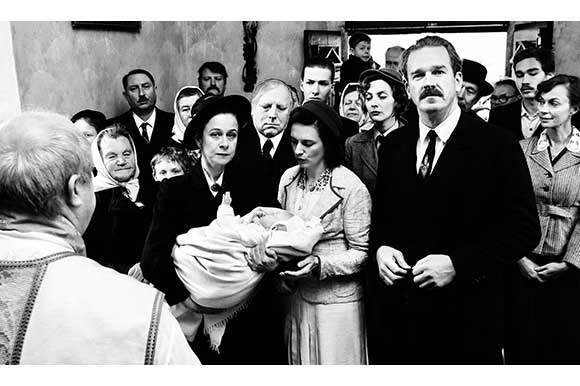 Caught in the Net / V síti by Vít Klusák and Barbora Chalupová, a Czech/Slovak coproduction produced by Hypermarket Film and coproduced by the Czech Television, RTVS, Peter Kerekes Film and Helium Film, was not only the most attended film in Czech cinemas in 2020, but also the most commercially successful Czech documentary of all time with 2.4 m EUR / 61 m CZK gross. The documentary about sexual harassment of children on the internet had more than 400,000 admissions and also a decent festival presence.
Caught in the Net / V síti by Vít Klusák and Barbora Chalupová, a Czech/Slovak coproduction produced by Hypermarket Film and coproduced by the Czech Television, RTVS, Peter Kerekes Film and Helium Film, was not only the most attended film in Czech cinemas in 2020, but also the most commercially successful Czech documentary of all time with 2.4 m EUR / 61 m CZK gross. The documentary about sexual harassment of children on the internet had more than 400,000 admissions and also a decent festival presence.
PRODUCTION
After the record-setting season of 2019, the pandemic year 2020 brought an inevitable decrease of film production. Yet cameras stopped rolling for only a brief period of time and many film productions still managed to go through, including numerous international coproductions, mostly Czech/Slovak.
Period films from recent Czech history, like Havel by Slávek Horák, produced by TVORBA Films in coproduction with the Czech Television, Charlatan by Agnieszka Holland or Shadow Country / Krajina ve stínu by Bohdan Sláma, represent a substantial part of the 2020 film offer.
Comedy remains a successful genre in Czech cinemas. In 2020, mainstream comedies like Deníček moderního fotra by Jan Haluza, produced by Fresh Lobster, and the directorial debut of the popular screenwriter Petr Kolečko Zbožňovaný, produced by MOJOFilm, were finished.
Some long-expected projects continued their production and postproduction, such as The Way Home / Cesta domů by Tomáš Vorel Sr., produced by Bontonfilm Studios, the ambitious internationally casted Medieval / Jan Žižka by Petr Jákl, coproduced by Genesy, Double Tree Entertainment, KORD.Media and Wog Film, and the animated film Nagano - zrození hrdinů by Pavel Sadílek, produced by VIAFILM production.
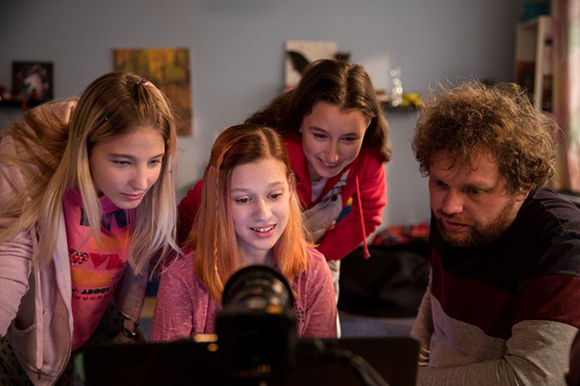 The international filming of Grand Prix by Jan Prušinovský, produced by Offside Men and coproduced by the Czech Television and Slovakia’s PubRes, was postponed to 2021.
The international filming of Grand Prix by Jan Prušinovský, produced by Offside Men and coproduced by the Czech Television and Slovakia’s PubRes, was postponed to 2021.
Olmo Omerzu finished his new feature film Bird Atlas / Atlas ptáků, a Czech/Slovenian/Slovak coproduction produced by Endorfilm and coproduced by Cvinger Film, Punkchart films and the Czech Television.
Michaela Pavlátová, who was nominated for an Oscar for the animated short Words, Words, Words / Řeči, řeči, řeči in 1991, finished her long awaited animated feature debut My Sunny Maad / Moje slunce Mad, produced by Czech Negativ in coproduction with the Czech Television, French Sacrebleu Productions, the Czech companies BFILM and Alkay Animation Prague, French Gao Shan Pictures and US Innervision.
Andy Fehu, who was known for a long time for his independent short films, finished his sophomore feature Shoky & Morthy, produced by Bionaut and Snake Catcher.
The Czech/Slovak coproduction Zátopek directed by David Ondříček and produced by Lucky Man Films in coproduction with the Czech Television, Barrandov Studios, Innogy Ceska Republika, T-mobile, Z Films, Accolade Holding, Azyl Production, ALEF NULA, Sebre, Olife Energy and RTVS, was also finished during 2020.
DISTRIBUTION
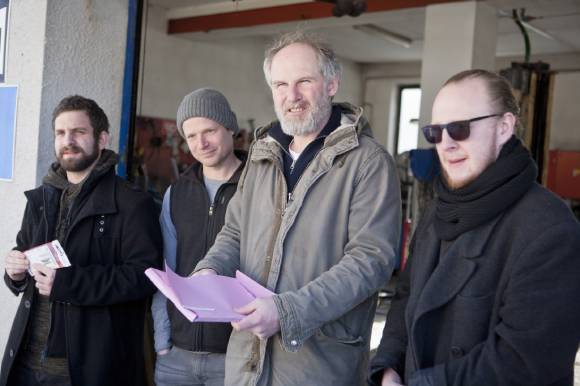 As many as 29 feature films were ready for their premiere during 2020, but only 19 of them reached the standard cinema distribution due to the pandemic. Possibly thanks to the absence of Hollywood productions, the attendance itself was quite sufficient for the domestic production. As a result, five most successful films in Czech cinemas were majority Czech productions, which would otherwise be highly unlikely.
As many as 29 feature films were ready for their premiere during 2020, but only 19 of them reached the standard cinema distribution due to the pandemic. Possibly thanks to the absence of Hollywood productions, the attendance itself was quite sufficient for the domestic production. As a result, five most successful films in Czech cinemas were majority Czech productions, which would otherwise be highly unlikely.
The most successful film of the year was the documentary Caught in the Net / V síti directed by Vít Klusák and distributed by Aerofilms, with more than 400,000 admissions and 2.4 m EUR / 61 m CZK gross.
The second most successful film of 2020 was the Czech/Slovak comedy Far Too Personal / Příliš osobní známost directed by Marta Ferencová, produced by Joy department in coproduction with NUNEZ NFE and Trinity Pictures, and distributed by Bioscop.
Far Too Personal was followed by the third installment of the popular series The Grapes 3 / 3Bobule directed by Martin Kopp, produced by Tomáš Vican, and distributed by Bioscop.
Charlatan / Šarlatán by Agnieszka Holland, distributed by CinemArt, was the fourth, followed by the comedy Chlap na střídačku by Petr Zahrádka, produced and distributed by Bohemia MP, and Sonic the Hedgehog directed by Jeff Fowler and distributed by CinemArt, which was the most profitable American/overall foreign film with approximately half as many admissions as Caught in the Net.
Three of the five most successful films were domestic comedies aimed at the middle-aged audience and slightly leaning towards the female audience.
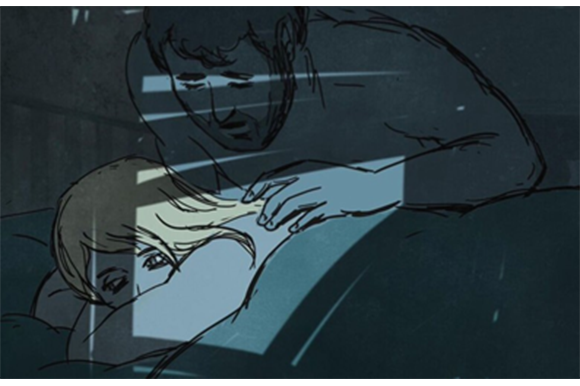 At the beginning of 2020, important films from last season, like the Czech/Ukrainian/Slovak Painted Bird / Nabarvené ptáče by Václav Marhoul, produced by Silver Screen in coproduction with RTVS, the Czech Television, Directory Films, Innogy, CertiCon, PubRes, Monte Rosso Production, Milada a Eduard Kučerovi and Richard Kaucký, and Daughter / Dcera by Daria Kashcheeva, produced by FAMU Film School in coproduction with Maur Film, continued their strong international presence. Daughter was nominated for the 2020 Oscars in the best animated short category.
At the beginning of 2020, important films from last season, like the Czech/Ukrainian/Slovak Painted Bird / Nabarvené ptáče by Václav Marhoul, produced by Silver Screen in coproduction with RTVS, the Czech Television, Directory Films, Innogy, CertiCon, PubRes, Monte Rosso Production, Milada a Eduard Kučerovi and Richard Kaucký, and Daughter / Dcera by Daria Kashcheeva, produced by FAMU Film School in coproduction with Maur Film, continued their strong international presence. Daughter was nominated for the 2020 Oscars in the best animated short category.
The Czech/Slovak/Romanian Servants / Služebníci by Ivan Ostrochovský, produced by Punkchart films and coproduced by RTVS, Film and Music Entertainment, Negativ, sentimentalfilm, Point Film, Libra Film Productions, Hai Hui Entertainment, did not enter standard distribution in 2020, but managed to premiere at the Berlinale.
VOD PLATFORMS AND ONLINE DISTRIBUTION
The Czech VOD market is shared by both local and international platforms. Their audience has increased considerably during the pandemic.
Seznam TV is growing local Internet TV, producing news, interviews and other original content.
The traditional TV networks make their content available on the Internet in order to reach a larger audience with their own VOD platforms. TV NOVA has its video library Voyo.cz, Prima group runs PrimaPlay.cz, while the Czech TV offers its content via iVysílání.
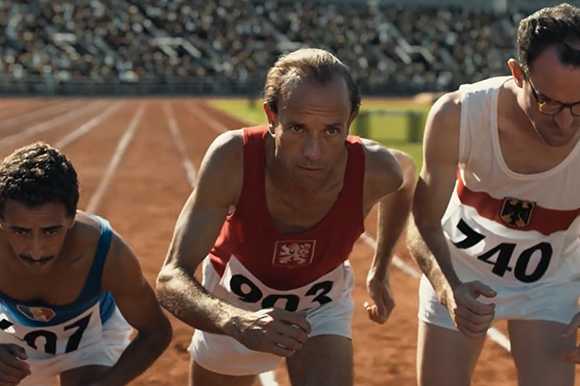 The long-time most viewed VOD portal in the Czech Republic is local Stream.cz, which managed to grow in the public eye thanks to viral shows like the political satire Kancelář Blaník, which gained a notoriety comparable to standard TV shows.
The long-time most viewed VOD portal in the Czech Republic is local Stream.cz, which managed to grow in the public eye thanks to viral shows like the political satire Kancelář Blaník, which gained a notoriety comparable to standard TV shows.
Other large platforms are international HBO Go and Netflix, which are growing faster than expected. HBO Go is expected to be replaced by HBO Max in near future and Disney+ is also expected to enter the Czech market.
Specialised documentary VOD service is provided by DAFilms.cz.
Aerovod, the VOD of film producer and distributor Aerofilms, counted 2020 as its best year, among others due to the documentary Caught in the Net / V síti by Vít Klusák and Barbora Chalupová.
EXHIBITION AND BOX OFFICE
Due to the pandemic, the yearly results show considerable decrease compared to the record setting season of 2019. According to the Union of Film Distributors / Unie filmových distributorů, there were 288,202 screenings in 2020, which is 46% less than in 2019. They were attended by 6,384,953 viewers, representing 65% less viewers, and resulting in 35 m EUR / 905,992,643 CZK gross.
The average ticket price in 2020 fell for the first time since 2014 by 1% to 5.55 EUR / 142 CZK.
The Union of Film Distributors lists 16 Czech distribution companies: Artcam Films, AČFK, Aerofilms, APK Cinema Service, Bioscop, Blue Sky Film Distribution, Bohemia Motion Pictures, Bontonfilm, CinemArt, Falcon, Film Europe, Forum Film Czech, Mirius Film Distribution, Národní filmový archiv, 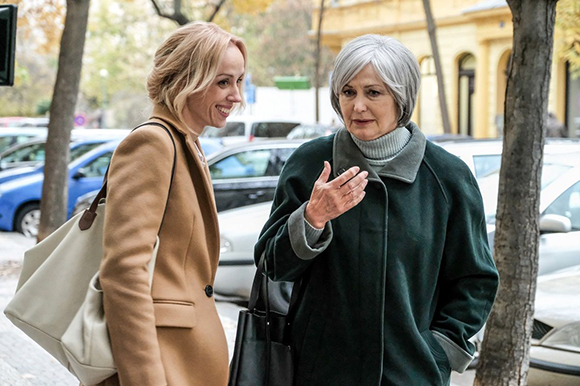 ROLLING PICTURES Entertainment and Vertical Entertainment.
ROLLING PICTURES Entertainment and Vertical Entertainment.
The long-time largest distribution companies in the Czech Republic are Falcon, CinemArt, Vertical Entertainment and Bontonfilm.
The largest multiplex cinema operators are Cinema City and CineStar.
The most attended film of the year was the documentary Caught in the Net / V síti by Vít Klusák and Barbora Chalupová with over 400,000 admission and 2.4 m EUR / 61 m CZK gross, distributed by Aerofilms.
GRANTS AND COVID-19 MEASURES
The main tool for public support of Czech cinema is the Czech Film Fund (CFF). Since 2017, CFF follows a three-point programme: 1) Quality film development and production of rich and diverse cinema; 2) Support of Czech films in distribution and support of useful distribution channels; 3) Better promotion of Czech cinema abroad.
As the film industry was not selected for the crisis state support during the pandemic, CFF together with the Ministry of Culture had to work on the crisis management by relocating the original budgets. Among other things, four special calls covering development, production and distribution were organised in order to support the industry. To compensate, CFF was granted extra 3.8 m EUR / 98 m CZK from the state budget at the end of 2020.
The calls of 2020 were chronologically: conferences and research projects in the field of film science; production of short fiction films with Czech majority; complete development of documentaries; complete development of feature films; production of animated films; non-periodical film publications; minority coproduction of fiction, documentary or animated films; production of documentaries; film distribution; two-year grant for full year budget of an institution; production of feature films; COVID call for distribution; COVID call for development of feature films, animated films or of TV series; COVID call for promotion of cinema halls and cinema screenings; complete development of animated films; promotion of Czech cinema; first draft of screenplay for life-action or long animated films production for first time directors; 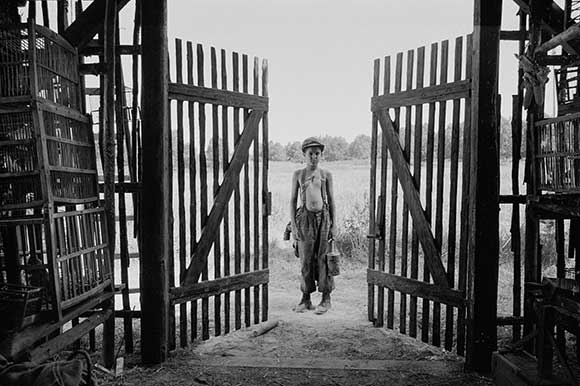 production of experimental films with Czech majority; complete development of animated TV shows; minority coproduction of life action animated or long documentary films; distribution projects; periodical publications and web pages; film distribution; complete development of feature films; production of documentaries; film festivals in 2021; complete development of documentaries; production of feature films; film education in 2021; audiovisual innovation.
production of experimental films with Czech majority; complete development of animated TV shows; minority coproduction of life action animated or long documentary films; distribution projects; periodical publications and web pages; film distribution; complete development of feature films; production of documentaries; film festivals in 2021; complete development of documentaries; production of feature films; film education in 2021; audiovisual innovation.
In 2020, the Czech Film Fund distributed 2.5 m EUR / 61.5 m CZK among 110 developing projects and 10.5 m EUR / 240 m CZK as production grants.
The Fund, through its division the Czech Film Center, represents and promotes the Czech cinema and film industry, and it increases the awareness of Czech film worldwide. It also supports the activities of film offices in the Czech Republic through the Czech Film Commission, helping Czech and foreign filmmakers to shoot in various regions of the country.
Among the important feature films supported in 2020 are The End of the World / Konec světa, a feature debut by Ivan Zachariáš, produced by LUMINAR Film, Furious Beauty / Vzteklá krása by Štěpán Altrichter, produced by moloko film, Vyvolený by Tomasz Mielnik, produced by Background Films, the animated film The Pearl / Perla by Martin Kotík, produced by Rolling Pictures, and the documentaries Blix by Greta Stocklassa, produced by PINK, and Planeta Praha by Jan Hošek, produced by Produkce Radim Procházka.
The Czech Film Fund also administrates the production incentives for film and TV productions shot in the Czech Republic. Life action, documentary and animated films at least 70 minutes long, life action shows with episodes at least 30 minutes long, and animated shows with episodes at least five minutes long are eligible.
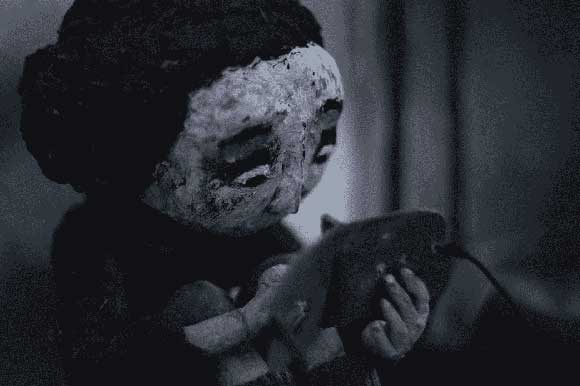 The incentives are granted in the form of a 20% cash rebate on Czech production costs and 66% on the withholding tax on non-resident labour costs paid in the Czech Republic. The incentives are available for feature, animated and documentary films, TV and animation series, including postproduction. Maximum eligible costs are set at 80% of the total budget and there is no cap on the incentive per project or per applicant. The applications can be submitted any time of the year.
The incentives are granted in the form of a 20% cash rebate on Czech production costs and 66% on the withholding tax on non-resident labour costs paid in the Czech Republic. The incentives are available for feature, animated and documentary films, TV and animation series, including postproduction. Maximum eligible costs are set at 80% of the total budget and there is no cap on the incentive per project or per applicant. The applications can be submitted any time of the year.
The incentives allocated in 2020 included 70 projects and reached 44 m EUR / 1.1 b CZK.
The most prominent project that used the CFF’s incentives in 2020 was Carnival Row 2 (Amazon, Legendary Television), created by Travis Beacham and René Echevarria, which had 121 shooting days in the Czech Republic, earning incentives of 9.6 m EUR / 246 m CZK. The production had to be postponed due to the pandemic, but after applying all the necessary precautions it was able to conclude shooting. The production was serviced by the Czech company Partnership Pictures.
The Wheel of Time (Amazon, Sony Pictures) created by Rafe Judkins and serviced by Stillking Features spent 79 days in the Czech Republic in 2020, earning 5.4 m EUR / 138 m CZK incentives, which is only part of the allocated money as some shooting had to be postponed for 2021.
The HBO production Oslo directed by Bartlett Sher was shot in the Czech Republic for 31 days, collecting 1.7 m EUR / 44.4 m CZK. The production was taken care of by Stillking Features.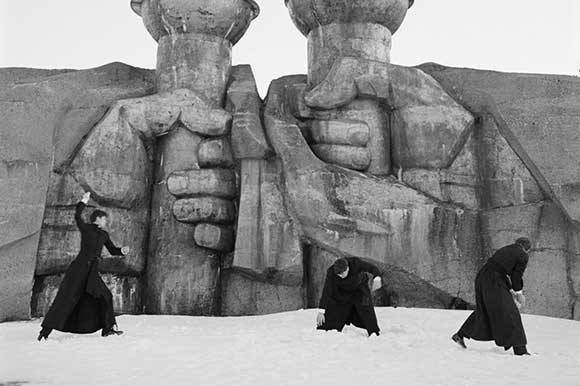
Other international projects shot in the Czech Republic in 2020 include Tag Team / The Falcon and the Winter Soldier created by Malcolm Spellman, produced by Marvel Studios for Disney+ and serviced by Stillking Features, We Children from Bahnhof Zoo directed by Philipp Kadelbach, produced by Amazon and serviced by Wilma Film, and Transatlantic 473 directed by Peter Thorwarth, produced by Netflix and serviced by Sirena Film.
All these productions had been postponed due to the pandemic, but they were successfully concluded eventually.
The CFF doesn’t expect the pandemic to negatively influence the interest of international coproductions for shooting in the Czech Republic. In fact, the sum of film production in 2021 in the Czech Republic is expected to match the record-setting year 2019.
TV
The major TV companies in the Czech Republic are NOVA group, the Czech Television and PRIMA group.
The Czech Television currently runs six channels: CT1, CT2, CT3, CT24, CT sport, CT:D and CT Art.
NOVA group channels include NOVA, Nova Cinema, Nova Action, Nova 2, Nova Gold, Nova Sport 1, Nova Sport 2 and Nova International.
PRIMA group consists of Prima Cool, Prima Krimi, Prima Love, Prima Max, Prima Plus, Prima Star. Prima Zoom, CNN Prima News.
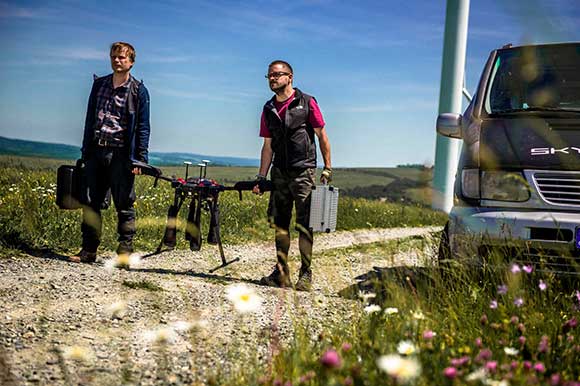 The market for TV advertising is dominated by Nova and Prima (90%), while advertising on the Czech Television is limited to the minimum by the law. The television is traditionally the strongest advertising medium in the country.
The market for TV advertising is dominated by Nova and Prima (90%), while advertising on the Czech Television is limited to the minimum by the law. The television is traditionally the strongest advertising medium in the country.
Television networks play a large role in the production of quality content for local film and TV productions. The Czech TV is a permanent partner of the Czech cinema, with its in-house production sector Film Center, coproducing increasing numbers of feature films. Czech TV is also a coproducer of almost all documentaries released in Czech cinemas.
Among the film projects coproduced by the Czech Television in 2020 are Havel by Slávek Horák, the Czech/Slovak/German Droneman / Modelář by Petr Zelenka, produced by 0,7km films and coproduced by the Czech Television, Innogy, Slovakia’s Punkchart films, Germany’s Fabula and Czech Hangar Films, Caught in the Net / V síti by Vít Klusák and Barbora Chalupová, Shadow Country / Krajina ve stínu by Bohdan Sláma, Charlatan / Šarlatán by Agnieszka Holland, and many others.
Among the important TV projects produced by the Czech Television in 2020 that still await the premiere is the third and final season of international coproduction Maria-Theresa / Marie Terezie, which is coproduced by the Czech Republic (Czech Television), Austria (ORF), Slovakia (RTVS) and Germany-France (ARTE).
Rats / Zrádci, a mini-series directed by Viktor Tauš and produced by the Czech Television, was awarded a Czech Lion and a Film Critics’ award.
The mini-series Actor / Herec by Peter Bebjak, another production by the Czech Television, also gained some attention.
CONTACTS:
CZECH FILM FUND
Veletržní palác, Dukelských hrdinů 47, 170 00 Prague 7
Phone: +420 224 301 278
This email address is being protected from spambots. You need JavaScript enabled to view it.
www.fondkinematografie.cz
CZECH FILM FUND - CZECH FILM CENTER
Národní 28, 110 00 Prague 1
Phone: +420 221 105 303
This email address is being protected from spambots. You need JavaScript enabled to view it.
www.filmcenter.cz
CZECH FILM FUND - CZECH FILM COMMISSION
Národní 28, 110 00 Prague 1
Phone: 420 778 543 290
This email address is being protected from spambots. You need JavaScript enabled to view it.
www.filmcommission.cz
NATIONAL FILM ARCHIVE
Malešická 12, 130 00 Prague 3
Phone: +420 778 522 729
This email address is being protected from spambots. You need JavaScript enabled to view it.
www.nfa.cz
APA- AUDIOVISUAL PRODUCERS’ ASSOCIATION
Národní 28, 110 00 Prague 1
Phone: +420 603 844 811
This email address is being protected from spambots. You need JavaScript enabled to view it.
www.asociaceproducentu.cz
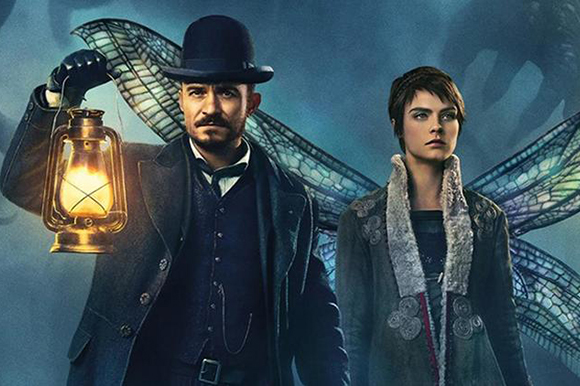 CREATIVE EUROPE – MEDIA CZECH REPUBLIC
CREATIVE EUROPE – MEDIA CZECH REPUBLIC
Národní 28, 110 00 Prague 1
Phone: +420 221 105 209
Fax: +420 221 105 303
This email address is being protected from spambots. You need JavaScript enabled to view it.
www.mediadeskcz.eu
CZECH FILM AND TELEVISION ACADEMY
Karlovo nám 285/19, 120 00 Prague 2
This email address is being protected from spambots. You need JavaScript enabled to view it.
www.cfta.cz
INSTITUTE OF DOCUMENTARY FILM
Štěpánská 611/14, 110 00 Praha 1
Phone: +420 224 214 858
Fax: +420 224 214 858
This email address is being protected from spambots. You need JavaScript enabled to view it.
www.dokweb.net
FITES – CZECH FILM AND TELEVISION UNION
Pod Nuselskými schody 3, 120 00 Prague 2
This email address is being protected from spambots. You need JavaScript enabled to view it.
www.fites.cz
UNION OF FILM DISTRIBUTORS
nám. Winstona Churchilla 2, 130 00 Prague 3
This email address is being protected from spambots. You need JavaScript enabled to view it. , www.ufd.cz
PRAGUE FILM FUND
Mariánské náměstí 2/2, 110 00 Praha 1
www.praguefilmfund.eu
ASSOCIATION OF CZECH ANIMATION FILM
Heřmanova 3, Prague
http://en.asaf.cz/
Report by Martin Svoboda (2021)
Sources: Czech Film Fund, Unie Filmových Distributorů, Czech Film Center
Estonia
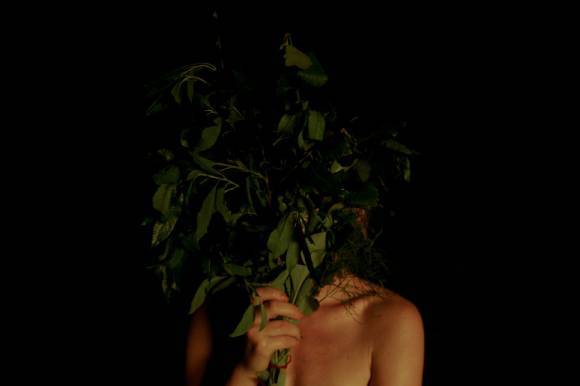 MARKET ANALYSIS 2023
MARKET ANALYSIS 2023
TALLINN: The year 2023 was certainly eventful for Estonia, both locally and internationally. The steady increase in admissions and box office didn’t reach the pre-pandemic levels, but took the total a whole lot closer. Cinemas were popular, films were talked about, and the wrap-up of 2023 seems like a good place from where to continue.
Admissions per capita reached over 2 again for the first time after the pandemic (2.06) and the ticket revenue surpassed 20 m EUR (20.98m EUR), almost catching up with the all-time highest number of 21.8 m EUR in 2019. One of the factors influencing this statistic is certainly the inflation rate, which has dropped significantly by 2024 to 5.0%, but even with this reduced number, Estonia is among the countries with one of the highest inflation rates in Europe.
The most attended film of 2023 was Barbie, followed by the local feature film The Vacationers / Suvitajad by Ergo Kuld, produced by Taska Film in coproduction with Apollo Film Productions and Kassikuld. Predictably, Oppenheimer came in the third spot.
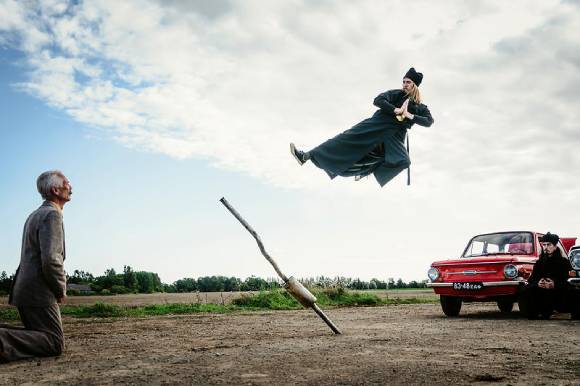 After The Vacationers, the top three of Estonian films was rounded out by feature films Faulty Brides / Vigased pruudid by Ergo Kuld, produced by Apollo Film Productions in coproduction with Taska Film and Kassikuld, and the final instalment of the Melchior the Apothecary trilogy – the Estonian/German/Latvian/Lithuanian Melchior the Apothecary: The Executioner’s Daughter / Apteeker Melchior. Timukatütar by Elmo Nüganen, produced by Taska Film, Nafta Films, Apollo Film Productions and Hansa Film, and coproduced by Maze Pictures, Film Angels Productions and InScript.
After The Vacationers, the top three of Estonian films was rounded out by feature films Faulty Brides / Vigased pruudid by Ergo Kuld, produced by Apollo Film Productions in coproduction with Taska Film and Kassikuld, and the final instalment of the Melchior the Apothecary trilogy – the Estonian/German/Latvian/Lithuanian Melchior the Apothecary: The Executioner’s Daughter / Apteeker Melchior. Timukatütar by Elmo Nüganen, produced by Taska Film, Nafta Films, Apollo Film Productions and Hansa Film, and coproduced by Maze Pictures, Film Angels Productions and InScript.
Local comedies found their audience, but we cannot disregard the fact that Apollo Film Productions belongs in the same company with Apollo Media group and Apollo cinema chain, both companies being the biggest in Estonia in film sector. Therefore, these films have notable advantage in advertising, marketing, distribution and even criticism.
Internationally, Estonia had a remarkable year, mainly due to one title that set new benchmarks for Estonian cinema in 2023. The documentary Smoke Sauna Sisterhood / Savvusanna sõsarad by Anna Hints, produced by Alexandra Film and coproduced by France’s Kepler 22 Production and Iceland’s Ursus Parvus, started the year off strong with the Best Director Award at the Sundance Film Festival, had an award-winning follow-up at a number of festivals, and by the end of 2023 received Estonia’s first ever European Film Award for Best European Documentary. The film also got nominated for the LUX Award and won few important prizes stateside, namely the IDA (International Documentary Association) Award and the Cinema Eye Honors Award for Best Cinematography for Ants Tammik.
The second success story was the most original work up-to-date by Rainer Sarnet The Invisible Fight / Nähtamatu võitlus, which premiered at Locarno. The film is produced by Estonia’s Homeless Bob Production in coproduction with Latvia’s White Picture, Greece’s Neda Film and Finland’s Helsinki-Filmi
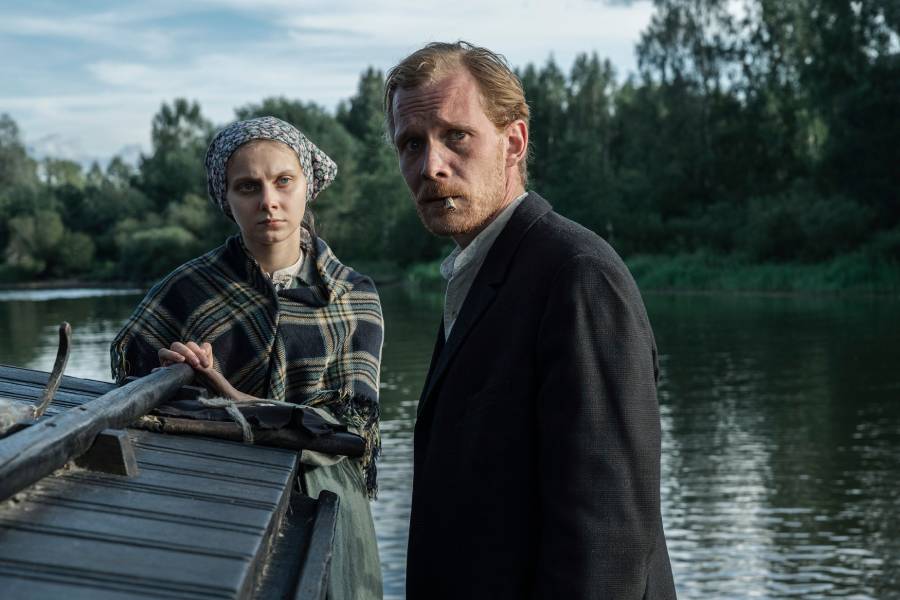 PRODUCTION
PRODUCTION
Several feature films were shot in 2023.
Tõnis Pill’s debut feature Frank, produced by Allfilm, is a youth-oriented drama that focuses on a teenage boy who has grown up in an abusive environment for most of his childhood. Coming from a broken family, Paul ends up in a foreign city, where he starts making a series of wrong decisions to find happiness, but his inevitable downfall is prevented by a strange disabled man.
Liina Trishkina-Vanhatalo’s sophomore feature Lioness / Emalõvi is a realistic drama about a worried mother and her daughter. When 15-year-old rebellious Stefi goes missing, her mother Helena has nothing left to lose anymore. Why cling to sanity when madness offers a chance for reconciliation and love? The film produced by Allfilm is scheduled for release in September 2024.
Another debut feature, Life and Love / Elu jaarmastus by Helen Takkin, is an adaptation of the novel under the same title by most renowned Estonian writer Anton Hansen Tammsaare, recounting a love story between a wealthy magnate and a country girl, who comes to the big city and ends up working as his maid. The film was shot in the summer of 2023, and it was produced by Taska Film in coproduction with Apollo Film Productions.
Jaak Kilmi’s The Shadow / Vari is based on the life of the Estonian poet Juhan Liiv, and follows Liiv, an aspiring poet who ends up in the middle of a gruesome murder mystery in the 1890s Estonia. Taska Film is producing in coproduction with Apollo Film Productions, Hansafilm and Reede. The film is scheduled to be released in October 2024.
Meel Paliale’s sophomore feature Long Papers / Pikadpaberid, produced by Tallifornia, is a generational observation about aimless young people in urban environment, who have what it  takes but are often not sure which direction to choose with their lives.
takes but are often not sure which direction to choose with their lives.
In the spring of 2023, a long and secretive shooting period ended for a film tentatively titled Dog / Koer, directed by Rasmus Merivoo and produced by Tallifornia. At the beginning of 2024, it was publicly announced that it is actually a sequel to the massively popular cult short film Alien / Tulnukas from 2006, and brings back the much loved gopnik parking lot small-time hustler characters, whose antiquated views have not quite survived the big democratic changes in the make-believe near-future society where all cars drive on electricity, all drugs are legal and all sexual liberties are encouraged.
Tallifornia is also responsible for a third film project, Two of Me / Meid on kaks by Esko Brothers, twin brothers who are making a self-reflective, playful feature film about twins trying to make a film about twins. This coming-of-age mixed genre film was shot over 22 days in July-September 2023, and the shoot will continue in 2024.
In the short film department, Anna Hints, who had notable success with Smoke Sauna Sisterhood on the festival circuit, shot a fiction film in the summer of 2023, a sort of male riff on the female sauna documentary. In Sauna Day, produced by Stellar Film, she and co-director Tushar Prakash follow two men friends in the sauna where it seems that there is more than friendship between them, something that can never be spelled out in a small town environment.
Black Hole / Must auk by Moonika Siimets, produced by Amrion, is a surreal blend of three Estonian short stories that is dealing with solitude and lack of love in the Tallinn tower block district. The film commenced shooting in the spring of 2023 and the delays in intricate postproduction have promised the autumn of 2024 as the new release date.
Aurora by Rain Tolk and Andres Maimik, produced by Kuukulgur Film, follows the eponymous daughter of a religious leader, who enters a secret extramarital affair that challenges her life arrangements. She tries to please everyone, but secrets begin to reveal themselves at the wrong time and in the wrong place.
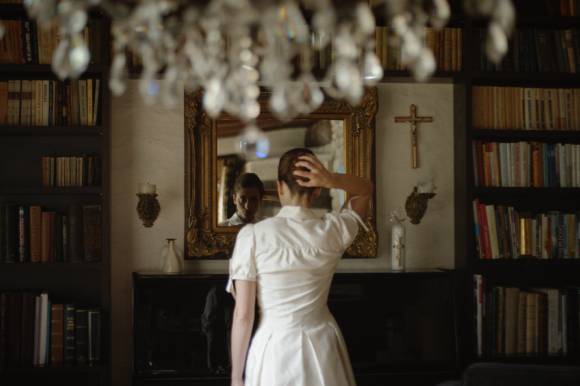 Out of more important minority coproductions, three Finnish films stand out.
Out of more important minority coproductions, three Finnish films stand out.
The documentary master Pirko Honkasalo is continuing her journey in the world of feature films with Orenda, a captivating relationship drama dealing with the themes of guilt and mercy. Orenda is written by established writer/director/actor Pirkko Saisio, who will also be performing one of the two main roles in the film, alongside Alma Pöysti. Finland’s Bufo is producing in coproduction with Estonia’s Allfilm and Sweden’s PlattformProduktion.
After Oscar-shortlisted The Fencer, produced by Finland’s Making Movies in coproduction with Allfilm in 2015, Klaus Häro returned to Estonia to shoot his historical drama Never Alone, about the attempt at ethnic cleansing of Jews in Finland during WW2. The film was shot from September to November 2023, and it is produced by Finland’s Matila Röhr Productions in coproduction with Estonia’s Taska Film, Sweden’s Hobab, Germany’s Penned Pictures and Austria’s Samsara Filmproduktion.
Miia Tervo’s latest feature film project The Missile was also shot in Estonia as a thriller-comedy based on a true event in 1984 when the Soviet Union inexplicably shot a missile to Finnish territory. The missile got lost and for some time nobody knew if it was a nuclear warhead or not. The Missile is produced by Finland’s Komeetta and Aurora Studios in coproduction with Estonia’s Stellar Film.
Apathy, a drama by Greek director Alexandros Avranas, follows Sergei and Natalia, political asylum-seekers who fled to Sweden with their two daughters, hoping for a new happy life. Those hopes are crushed when their application is rejected, and their daughter Katja, traumatised by this episode, suddenly falls into a “coma”, a condition known as Resignation Syndrome or Apathy, explained as self-protection against the feeling of fear. The film is produced by France’s Les Films du Worso and Elle Driver, and coproduced by Estonia’s Amrion and Three Brothers, Greece’s Playground and Asterisk, Sweden’s Fox in the Snow Films, and Germany’s ARTE France & Germany.
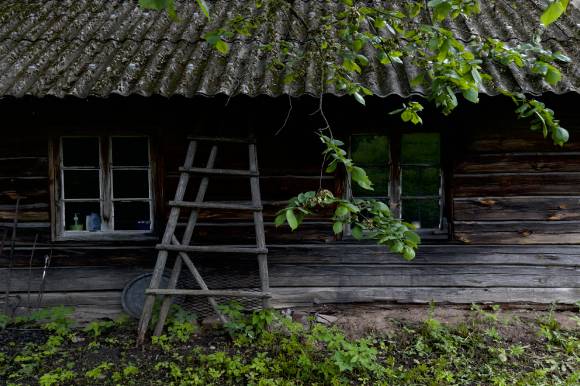 Swedish Torpedo is a period drama that tells the story of Sally Bauer, the first Scandinavian to swim across the English Channel in 1939. The film is directed by Frida Kempff and is produced by Sweden’s Momento Film in coproduction with Estonia’s Amrion and Three Brothers, Denmark’s Toolbox Film, Finland’s Inland Film Company and Belgium’s Velvet Films.
Swedish Torpedo is a period drama that tells the story of Sally Bauer, the first Scandinavian to swim across the English Channel in 1939. The film is directed by Frida Kempff and is produced by Sweden’s Momento Film in coproduction with Estonia’s Amrion and Three Brothers, Denmark’s Toolbox Film, Finland’s Inland Film Company and Belgium’s Velvet Films.
DISTRIBUTION
A total of 424 films were released in Estonia in 2023, of which 282 were new titles. The result of 2.82 m admissions is yet another remarkable uptick from 2022 (2.33m admissions), gathering the box office of 20.98 m EUR. The admissions per capita rose over 2, up to 2.06 (from 1.75 in 2022), and the average cost of a cinema ticket was 7.44 EUR.
A total of 54 Estonian films were theatrically released in 2023, out of those, 31 were new titles. Estonian films scored 613,227 admissions (notably more than 481,585 admissions in 2022), with 4.2 m EUR gross, surpassing 2022 with a cool 1 m EUR. Local market share went up a notch as well, reaching 21.75% (compared to 20.67% in 2022).
Estonian year 2023 in international festivals was fully dictated by the incomparable successes of Smoke Sauna Sisterhood. Starting with the Best Director Award in the World Documentary Competition of the Sundance Film Festival, the film managed to win the FIPRESCI Prize at the Viennale, and Best Long Documentary Prize in San Francisco, plus about two dozen other awards, including the European Film Award for Best European Documentary (unprecedented for Estonia), not to mention almost all Estonian annual cultural awards imaginable.
From feature films, 2023’s most original work was Rainer Sarnet’s The Invisible Fight / Nähtamatu võitlus. This Orthodox heavy metal kung-fu absurd comedy, produced by Estonia’s Homeless Bob Production in coproduction with Latvia’s White Picture, Greece’s Neda Film and Finland’s Helsinki-Filmi, had its premiere in Locarno’s main competition where it got a lot of attention and started its festival circuit.
In the world of animation, the short film Eeva by Morten Tšinakov and Lucija Mrzljak, produced by Eesti Joonisfilm and Croatia’s Adriatic Animation, premiered in Berlinale’s Short Film Competition and won several awards over the year, including the Alexeïeff–Parker Award at Annecy, the Grand Jury Prize at Nashville and Best Croatian Film Award at World Festival of Animated Film – Animafest Zagreb 2023.
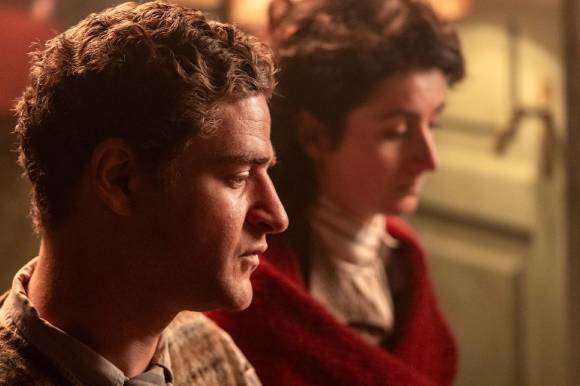 A creative documentary, the wonderfully observing Sundial / Päikeseaeg directed by Liis Nimik and produced by Klara Films, gained attention of both Visions du Réel in Nyon and Hot Docs in Toronto.
A creative documentary, the wonderfully observing Sundial / Päikeseaeg directed by Liis Nimik and produced by Klara Films, gained attention of both Visions du Réel in Nyon and Hot Docs in Toronto.
Hot Docs also premiered another Estonian documentary, The Last Relic / Viimane reliikvia by Marianna Kaat, a provocative portrait of Russian dissidents in Yekaterinburg before the outbreak of the Ukraine War. The Last Relic won the support of the audience both at home and abroad, winning Best Director at Vitaly Mansky’s ArtDocFest Riga. The film is produced by Baltic Film Production and Norway’s Ten Thousand Images.
At the Estonian National Film Awards, most wins went to the 2022 historical basketball flick Kalev by Ove Musting, produced by Allfilm in coproduction with Ugri Film, including Best Feature Film and Best Director. The Best Documentary Award went to a portrait of jazz saxophonist Maria Faust called Machina Faust, which was directed by Kaupo Kruusiauk and produced by Flo Film, while the Best Animation Award went to Dog Apartment / Koerkorter directed by Priit Tender and produced by Nukufilm.
Virgin Maali, the annual award by the Estonian Film Journalists’ Association went to Smoke Sauna Sisterhood as the best film of 2023, given out in the first days on January 2024.
VOD PLATFORMS AND ONLINE DISTRIBUTION
The Estonian Film Institute launched the ARKAADER platform for Estonian films at the end of 2022, enjoying a highly successful year as a promotional platform for Estonian cinema worldwide. In 2023, the Institute innovated further by introducing a dedicated branch tailored to schools, integrating Estonian films into their educational programmes.
In 2023 Jupiter, the VOD platform of the Estonian National Broadcast ERR, strengthened its positions, growing mostly because of the renewed television applications for local market.
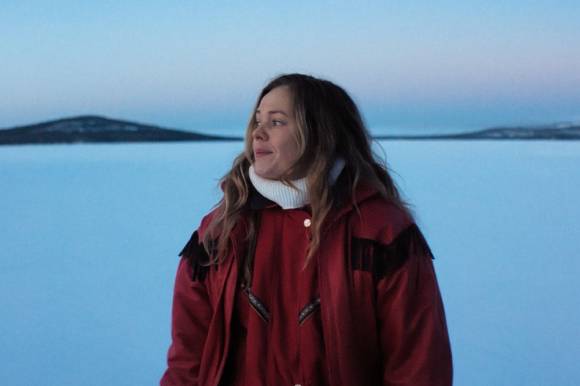 Viaplay decided to leave the Baltic market, creating some confusion, especially in the sphere of sports events rights. This exit comes with a bit of regret from the audience because their drama series were quite good, for example Who Killed Otto Müller? directed by René Vilbre.
Viaplay decided to leave the Baltic market, creating some confusion, especially in the sphere of sports events rights. This exit comes with a bit of regret from the audience because their drama series were quite good, for example Who Killed Otto Müller? directed by René Vilbre.
The biggest winner after Viaplay’s exit is Go3, which took over their subscriptions and part of the content. A lot of sports related content will also be moving to Go3.
Elisa is continuing its strong support for financing drama series and sponsoring the Black Nights Film Festival and it deserves credit for that. The third season of the series Traitor directed by Ove Musting, about a Russian spy in Estonian Ministry of Defense, is setting a new bar for domestic TV series.
The newly resurrected Eesti Telefilm (the film production branch of Soviet Estonian national broadcast) is aiming to produce two additional drama series for VOD. International coproduction deals promise an influx of international funding, starting with Italy and the planned coproduced series Detective von Fock.
EXHIBITION AND BOX OFFICE
The annual overall box office top ten shows favourable results to local product, because the top six spots are alternating between foreign and domestic releases, and Estonian films compete successfully with big international hits.
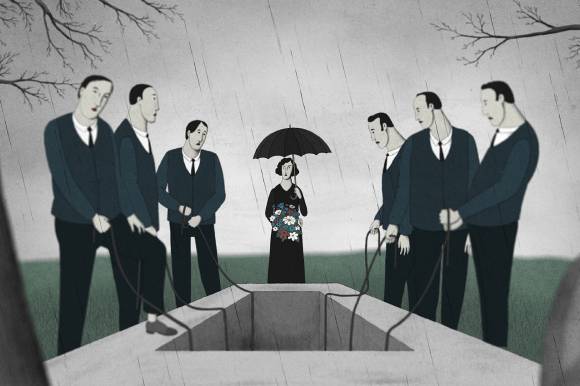 To no big surprise, the biggest foreign film and the overall winner of the year by a long margin was Barbie with 150,406 admissions, followed by Oppenheimer with 106,785 admissions in the third place and the animated film Super Mario Bros. The Movie in the fifth overall place with 78,162 admissions.
To no big surprise, the biggest foreign film and the overall winner of the year by a long margin was Barbie with 150,406 admissions, followed by Oppenheimer with 106,785 admissions in the third place and the animated film Super Mario Bros. The Movie in the fifth overall place with 78,162 admissions.
Estonian broad comedy The Vacationers / Suvitajad (a remake of a national classic Here We Are! from 1978) came in second with 107,095 admissions between the two Barbenheimer entries, another comedy by the same team, Faulty Brides (a remake of a TV play under the same name from 1989) came fourth with 93,713 admissions, while the final episode (at least so far) of the Medieval Melchior crime films, Melchior the Apothecary: The Executioner’s Daughter came sixth with 77,951 admissions.
The top ten is rounded up by three more animated titles: Elemental at number seven with 59 255 admissions, Paw Patrol: The Mighty Movie at eight with 54,173 admissions and Trolls Band Together at ten with 49,569 admissions. Slightly less animated Fast X reached the ninth spot with 52,236 admissions.
The highest scoring European production was another animated film, France’s Ladybug & Cat Noir: The Movie, which came19th with 36,218 admissions. The highest European live action film was the British/Australian horror movie Talk to Me with 8,192 admissions.
The domestic top ten was dominated by feature films as expected, with one animated film and one documentary also making the cut. The three aforementioned features were followed by the animated omnibus-film Poop, Spring and Others / Kaka, kevadjateised, produced by A Film Estonia, with 44,794 admissions. Based on five children’s short stories by Andrusk Kivirähk, 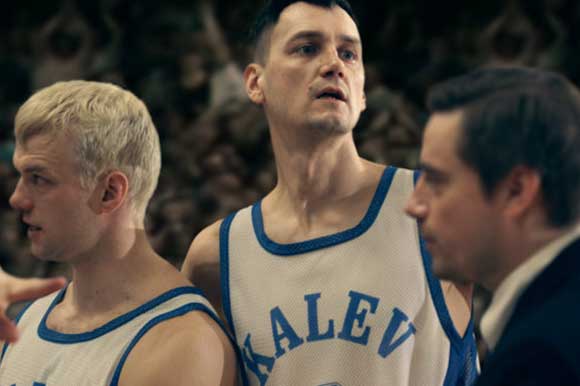 each episode is directed by a different filmmaker: Heiki Ernits, Meelis Arulepp, Mikk Mägi, René Vilbre and Oskar Lehemaa.
each episode is directed by a different filmmaker: Heiki Ernits, Meelis Arulepp, Mikk Mägi, René Vilbre and Oskar Lehemaa.
At spot number five of the domestic chart, we find yet another broad comedy produced by Taska Film and Apollo Film Productions, called Fools of Fame / Kuulsuse narrid directed by Ain Mäeots, which gathered 42,971 admissions. The second half of the top ten in 2023 is refreshingly versatile. The children’s modern tech-comedy Totally Boss / Tähtsad ninad directed by renowned theatre director Ingomar Vihmar making his feature film debut, and produced by Nafta Films, came sixth with 34,107 admissions.
The nostalgic period comedy about time travel Stairway to Heaven by Mart Kivastik, produced by Filmivabrik, is at place number seven with 33,542 admissions, followed by the documentary Smoke Sauna Sisterhood with 33,527 admissions, black crypto-comedy Free Money / Vabaraha by Rain Rannu, produced by Tallifornia, with 29,435 admissions and Tanel Toom’s post-apocalyptic thriller The Last Sentinel / Viimane vahipost, produced by Estonia’s Allfilm, Germany’s Kick Film and UK’s Sentinel Entertainment, plus UK’s CrossDay Productions and Stigma Films attached as coproducers, with 19,332 admissions.
Apollo-affiliated Hea Film continued to dictate the domestic top ten. Seven out of ten titles are distributed by them, ACME is the distributor for Stairway to Heaven and Smoke Sauna Sisterhood, while Tallifornia distributes its own titles, including Free Money.
All in all, Hea Film has a distribution market share of 75%, pan-Baltic ACME comes second with 13%, the third spot is taken by Tallifornia with 6% and the others follow with smaller shares.
The American annual market share was up to 64% in 2023 (from 59% in 2022), Estonia is second with 22%, the whole of Europe follows with 12%, leaving the remaining 2% to the rest of the 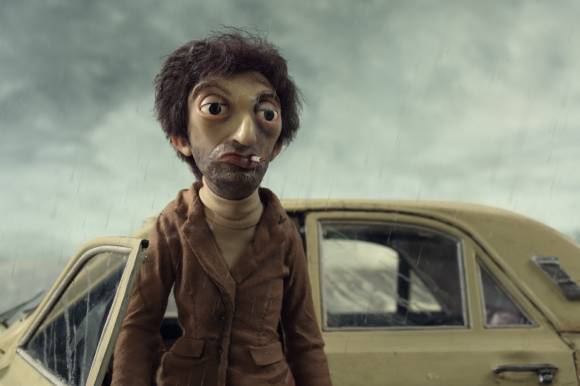 world.
world.
GRANTS AND LEGISLATION
The Estonian Film Institute granted 6,009,210 EUR to various national film projects in 2023. Of this amount, 2,804,210 EUR was allocated for the production of eight feature films, 300,000 EUR for the development of six feature films, 80,000 EUR to feature film script support (six projects), 150,000 EUR for the production of three short films, 80,000 EUR for the development of two miniseries, 528,000 EUR for the production of 13 documentaries, and 128,000 EUR for the development of nine documentary projects.
“Estonian Stories” documentary chronicles and documentary portraits got 134,000 EUR (12 projects), while 30,000 EUR was given for the development and postproduction of two documentary series, and the Tartu 2024 Cultural Capital documentary programme was supported with 120,000 EUR (eight projects).
Eleven animated films received 881,000 EUR for production, and nine animated projects received 119,000 EUR for development. Nine minority coproductions received 825,000 EUR.
Production grants went to the following feature films:
Lioness / Emalõvi by Liina Trishkina-Vanhatalo, produced by Allfilm, Dog / Koer by Rasmus Merivoo, produced by Tallifornia, Our Erika / Meie Erika by German Golub, produced by Filmivabrik, Frank by Tõnis Pill, produced by Allfilm, Looking for the Lost World / Kadunud maailma otsides by Janno Jürgens, produced by Kosmosesügis, Two of Me / Mind on kaks by  Raul Esko and Romet Esko, produced by Tallifornia, Long Papers / Pikad paberid by Meel Paliale, produced by Tallifornia, and Serafima and Bogdan by Veiko Õunpuu, produced by Nafta Films.
Raul Esko and Romet Esko, produced by Tallifornia, Long Papers / Pikad paberid by Meel Paliale, produced by Tallifornia, and Serafima and Bogdan by Veiko Õunpuu, produced by Nafta Films.
To support Estonian film producers' participation in international feature, documentary and animated films, grants are provided to Estonian minority coproducers. In 2023, there were 19 applications for minority coproductions, resulting in grants being awarded to five feature films, one documentary and one short animated film (compared to 23 applications and seven grants in 2022). The main coproducing countries in 2023 were Germany, Sweden, Latvia, Georgia, the U.S., and Armenia. Grants were awarded to 37% of the applications submitted.
In summary, the highest competition is in the categories of feature films and documentaries, especially regarding production grants. Of the applicants for production grants for feature films and documentaries, 40% and 44%, respectively received funding, while for animated films, the percentage of recipients among applicants was much higher, 73%.
The Film Estonia cash rebate programme gave out a total of 3.8 m EUR for foreign projects shooting in Estonia. In 2023, most of the projects funded through Film Estonia were minority coproductions already listed earlier (Never Alone, The Missile, Orenda, The Swedish Torpedo and Apathy), as well as the ambitious eight-part series Estonia about the sinking of the MS Estonia ferry in 1994, which was created by Finland’s Miikko Oikonen, directed by Måns Månsson and Juuso Syrjä, and produced by Finland’s Fisher King Productions in coproduction with Estonia’s Amrion, Sweden’s Kärnfilm and Belgium’s Panache Productions. With a 15 m EUR budget, it is the most expensive TV series 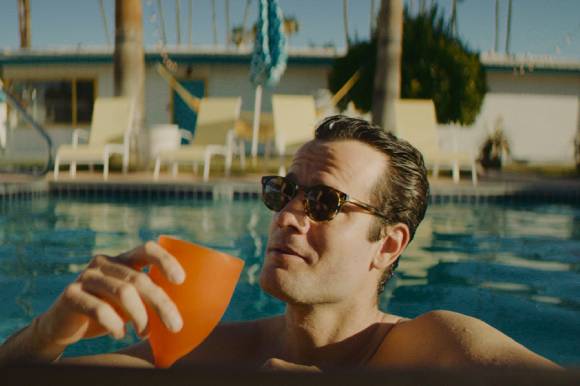 produced in Finland or Estonia.
produced in Finland or Estonia.
TV
It could be noticed in 2023 that Estonian TV audience gradually grew more and more weary of hard themes like wars and disasters. Light entertainment was on the rise, mostly offered by commercial channels TV3 and Kanal 2, rather than national broadcast. In 2023, the ratings of the TV channels remained more or less the same, but Kanal 2 went up a little, due to the mentioned change in preferences, and more economical and flexible programming policy.
The TV series in Estonia are still mainly coproduced between bigger linear TV channels and telecom companies, but in general the numbers of domestic TV series remained below expectations in 2023.
CONTACTS:
ESTONIAN FILM INSTITUTE
Uus 3, Tallinn 10111
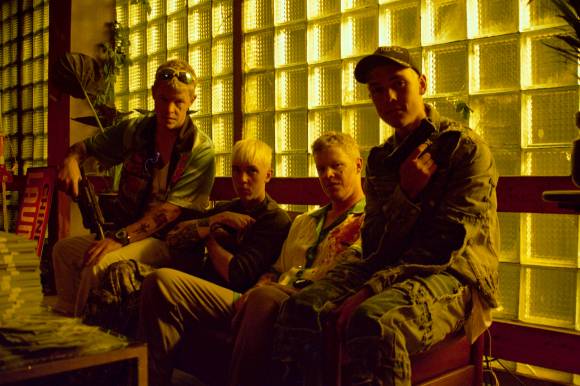 Phone: +372 627 60 60
Phone: +372 627 60 60
Fax: +372 627 60 61
www.filmi.ee
This email address is being protected from spambots. You need JavaScript enabled to view it.
CULTURAL ENDOWMENT OF ESTONIA
Suur-Karja 23, Tallinn 10148
Phone: +372 699 9150
www.kulka.ee
This email address is being protected from spambots. You need JavaScript enabled to view it.
ESTONIAN ANIMATION UNION
Roo 9, Tallinn 10611
www.animaliit.ee
Contact: Mari Kivi
This email address is being protected from spambots. You need JavaScript enabled to view it.
ESTONIAN DOCUMENTARY GUILD
Vilmsi 53g, 10147 Tallinn
www.dokfilm.ee
This email address is being protected from spambots. You need JavaScript enabled to view it.
ESTONIAN FILMMAKERS’ UNION
Uus 3, Tallinn 10111
Phone: +372 646 4068
www.kinoliit.ee
This email address is being protected from spambots. You need JavaScript enabled to view it.
Contact: Marika Streimann
ESTONIAN FILM INDUSTRY CLUSTER
This email address is being protected from spambots. You need JavaScript enabled to view it.
Contact: Piret Tibbo-Hudgins
ESTONIAN SOCIETY OF CINEMATOGRAPHERS ESC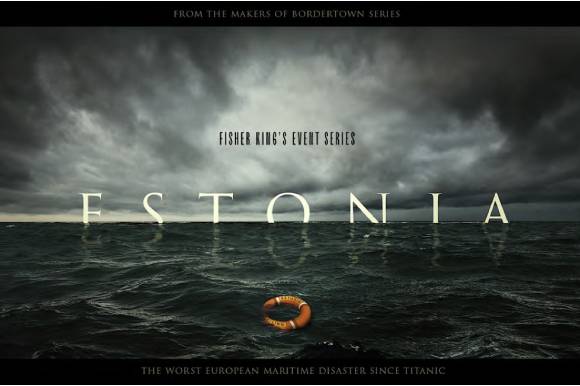
www.esc.edicypages.com/et
ESTONIAN FILM DIRECTORS’ GUILD
This email address is being protected from spambots. You need JavaScript enabled to view it.
Contact: Moonika Siimets and LiinaTrishkina-Vanhatalo
ESTONIAN SCREENWRITERS’ GUILD
Eesti Stsenaristide Gild:
This email address is being protected from spambots. You need JavaScript enabled to view it.
Contact: Lauri Lippmaa
THE ASSOCIATION OF PROFESSIONAL ACTORS OF ESTONIA
Uus 5, Tallinn 10111
Phone: +372 646 4517
Fax: +372 646 4516
www.enliit.ee
This email address is being protected from spambots. You need JavaScript enabled to view it.
THE ESTONIAN FILM JOURNALISTS’ASSOCIATION
Narvamnt 11e, Tallinn 10151
Phone: +372 669 8210
www.filmikriitik.ee
This email address is being protected from spambots. You need JavaScript enabled to view it. ; This email address is being protected from spambots. You need JavaScript enabled to view it.
Contact: Andrei Liimets
THE UNION OF ESTONIAN FILM CLUBS
Vikerlase 13-62, Tallinn 13616
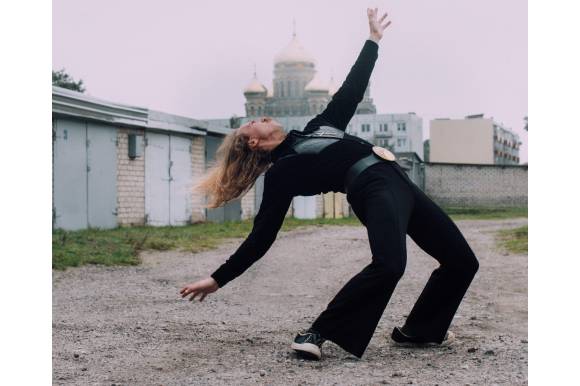 Phone: +372 632 4662; +372 55 46042
Phone: +372 632 4662; +372 55 46042
This email address is being protected from spambots. You need JavaScript enabled to view it.
Contact: Raivo Olmet
ESTONIAN FILM MUSEUM
Pirita road 56, 10127 Tallinn
Phone: +372 6 968 600; +372 5620 8875
http://www.ajaloomuuseum.ee/en/filmmuseum
This email address is being protected from spambots. You need JavaScript enabled to view it.
Contact: Sten Kauber
ESTONIAN FILM DATABASE
Koidu 17-1, 10137 Tallinn
Phone: +372 6015982
This email address is being protected from spambots. You need JavaScript enabled to view it.
www.efis.ee/en
ESTONIAN FILM ARCHIVES
Ristiku 84, Tallinn 10318
Phone: +372 693 8613
www.filmi.arhiiv.ee/index.php?lang=eng
This email address is being protected from spambots. You need JavaScript enabled to view it.
Report by Tristan Priimägi (2024)
Sources: the Estonian Film Institute (EFI), the Cultural Endowment of Estonia
Checked by Edith Sepp, EFI
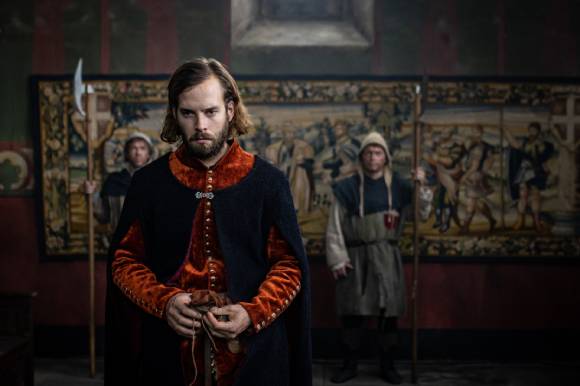 MARKET ANALYSIS 2022
MARKET ANALYSIS 2022
TALLINN: After the long effects of isolation and gradual recuperation from the effects of the pandemic, which managed to freeze distributionand production completely for periods of time, the year 2022 felt like a comeback in several ways. In short, it seemed that people found cinema again, and cinema found people.
Although it still takes some additional effort to reach pre-pandemic levels, the arrows turned upward on both admissions and revenue charts: the admissions per capita moved to 1.75 and the overall ticket revenue almost doubled. This is partly thanks to higher admission numbers, but it can also partly be explained by the high inflation rate in Estonia, reaching an unprecedented 19.45% in 2022.
The three Estonian films with most admissions were Melchior the Apothecary / Apteeker Melchior by Elmo Nüganen, Kalev by Ove Musting and Melchior the Apothecary: The Ghost / Apteeker Melchior. Viirastus by Elmo Nüganen, while the international top three consists of Minions 2, Avatar: The Way of Water and Top Gun: Maverick.
After the previous good international year, 2022 was quite uneventful, except for a couple of runaway successes like the short animated film Sierra by Sander Joon, which had a great festival run and became the first Estonian short animated film to land on the Oscars shortlist in the short animated film category. Several promising releases moved to 2023, a year that will be definitely more exciting in that regard.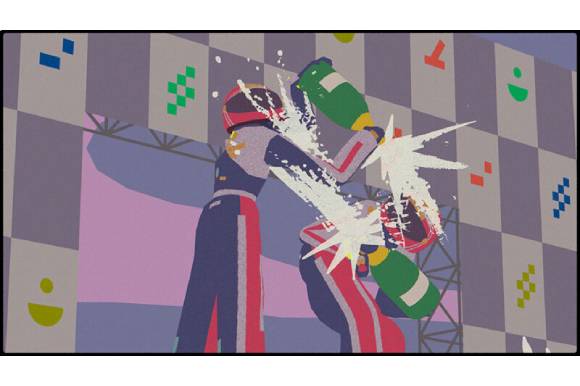
PRODUCTION
Several feature films were shot in 2022, all of them supported by the Estonian Film Institute.
8 Faces of Lake Biwa / Biwa järve 8 nägu by Marko Raat is a coming-of-age tale taking place in the Estonian Old Believers’ community. It features a blend of Baltic and Japanese culture and imagery, wrapped in a net of tragic love stories told through the prism of the Japanese “Eight Views” art tradition. The film is produced by Estonia’s Allfilm and coproduced by Bufo from Finland.
Black Hole / Must auk by Moonika Siimets, produced by Amrion, is a surreal blend of three Estonian short stories dealing with solitude and lack of love in the Tallinn tower block district.
Free Money / Vaba raha by Rain Rannu, produced by Tallifornia, was also shot in 2022 in Estonia and the United States, and consists of three loosely interconnected stories about money, cryptocurrency and the investment culture of the last few years when investing has become a form of entertainment.
Another Tallifornia title, Dog / Koer by Rasmus Merivoo, started preproduction in 2022 and will commence the shooting in 2023.
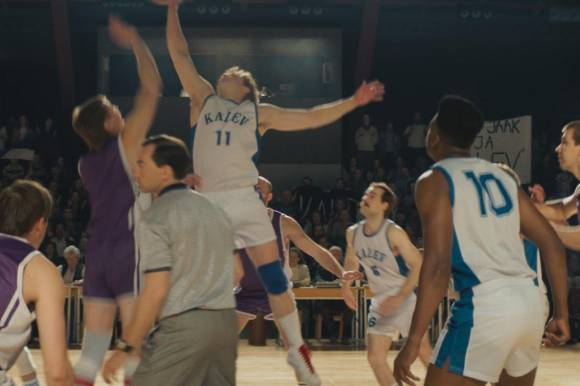 The film One-Dimensional Man / Ühemõõtmeline mees by Andres Puustusmaa, produced by LEO Production and coproduced by Latvia’s Studio Locomotive, was shot in October/November 2022. The film talks about repressive communist ideology passed on from generation to generation, from father to son.
The film One-Dimensional Man / Ühemõõtmeline mees by Andres Puustusmaa, produced by LEO Production and coproduced by Latvia’s Studio Locomotive, was shot in October/November 2022. The film talks about repressive communist ideology passed on from generation to generation, from father to son.
Among feature films not supported by the state funds, Faulty Brides / Vigased pruudid, an adaptation of a comical Estonian screenplay by Eduard Vilde from 1888, was shot over 18 days in June - July 2022. It is directed by Ergo Kuld and produced by TaskaFilm, Apollo Film Productions and Kassikuld.
DISTRIBUTION
A total of 349 films were released in Estonia in 2022, out of those 233 were new titles. The 2.33 m viewers are a considerable improvement from 2021 (1.38 m), gathering box office of 16.28 m EUR. Admissions per capita rose to 1.75 (up from 1.05 in 2021), and the average cost of a cinema ticket was 6.99 EUR.
A total of 51 Estonian films were theatrically released in 2022, out of those 30 were new titles. Estonian films scored 481,585 admissions and cashed in 3.2 m EUR. It is satisfying to see that local market share gained a very healthy level of 20.67% again, considering that 2020 was amazing with 26.72% and 2021 showed only 14.2% because of postponed key releases.
Apollo-affiliated Hea Film dominated the distribution, as the whole ten out of ten top titles in the general (foreign and domestic) chart were all distributed by them. Hea Film had an annual market share of 63.44% of all admissions, followed by ACME (25.93%). The others remained under ten per cent: GPI (3.26%), VLG Films (1.57%) and BestFilm (1.27%). The rest of the small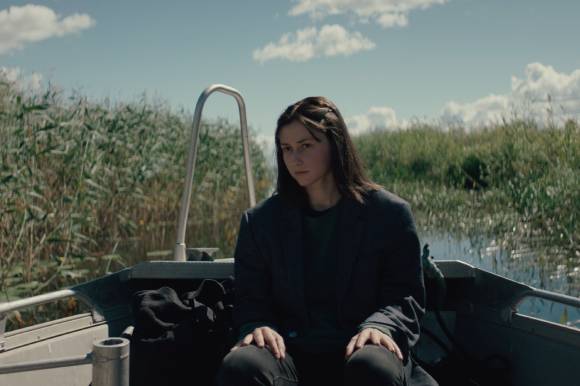 distributors were jointly responsible for the remaining 4.53%.
distributors were jointly responsible for the remaining 4.53%.
The annual market share between different territories divided as follows: USA 59%, Estonia 21%, Europe 14% and 6% to the rest of the world.
Internationally, the animated film Sierra by Sander Joon ended up being the first ever Estonian title to be sold to Criterion Channel. The British/Estonian debut feature Firebird / Tulilind by Peeter Rebane, produced by Rebane’s own The Factory and UK’s No Reservations Entertainment, sold its North American distribution rights to Roadside Attraction.
The Melchior the Apothecary trilogy was picked up by Global Screen, the worldwide distribution arm of TELEPOOL, to be released as a six-part miniseries. The international TV drama series Estonia, produced by Finland’s Fisher King OY, Estonia’s Amrion, Belgium’s Panache Productions and Sweden’s Kärnfilm Ab, was sold to Seven.One Entertainment Group, which runs ProSieben.
VOD PLATFORMS AND ONLINE DISTRIBUTION
An important event in 2022 was the launch of a new VOD platform for Estonian films, Arkaader. The platform was founded and financed by the Estonian Film Institute and the Estonian National Archive’s film archive, and it offers a wide selection of digitally restored Estonian films, both old and new titles, obscure and well-known. Since its launch on 13 December 2022 till May 2023, Arkaader counted about 10,000 unique visitors per month, and the number of audiovisual products available (some for a fee, some for free) was 2943 at the beginning of May 2023, varying from showreels and chronicle pieces to long films. Films are being added to the platform continuously.
Estonian VOD landscape went through some stabilisation in 2022, and generally, people were more open to using VOD platforms. Jupiter, the official VOD platform of the Estonian National 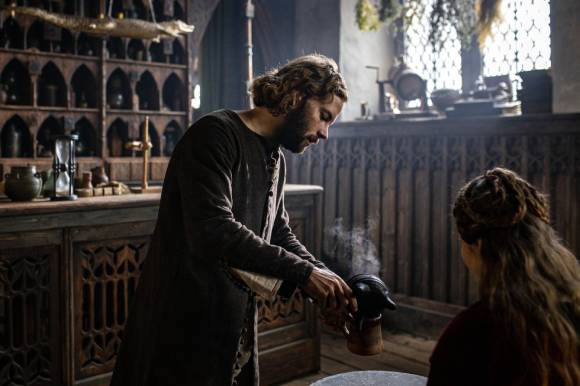 Broadcast ERR grew its streaming audience organically by about 30% and launched its subsection IO, targeted at young audiences. Viaplay chose to invest in a lot of important sports events rights and strengthened its position in the market through that.
Broadcast ERR grew its streaming audience organically by about 30% and launched its subsection IO, targeted at young audiences. Viaplay chose to invest in a lot of important sports events rights and strengthened its position in the market through that.
In 2022 Apollo TV, the online branch of the leading exhibitor Apollo Kino and producer Apollo Film, announced somewhat unexpectedly that it will cease its activities after only a year and a half, and its clients will be taken over by Go3.
EXHIBITION AND BOX OFFICE
The most successful foreign film of the year turned out to be Minions 2 with 147,727 admissions, followed by Avatar: The Way of Water (109,844 admissions) and Top Gun: Maverick (63,106 admissions). The biggest European title (but still a US minority coproduction) was Ruben Östlund’s Triangle of Sadness, distributed by FilmStop, which reached the 30th spot with 23,422 admissions.
Three Estonian films made it to the annual top ten. The first film of Elmo Nüganen’s trilogy about the Medieval detective-apothecary, Melchior the Apothecary / Apteeker Melchior, took the second spot with 129,400 admissions, while the second instalment Melchior the Apothecary: The Ghost / Apteeker Melchior. Viirastus came in fifth with 86,096 admissions.
Both Melchior the Apothecary and Melchior the Apothecary: The Ghost were produced by Taska Film, Apollo Film Productions, Nafta Films and Hansafilm, and coproduced by Latvia’s Film Angels Productions, Lithuania’s InScript and Germany’s Maze Pictures.
Between them, the historical sports film about the legendary basketball team, Kalev by Ove Musting, produced by Allfilm, managed to take the bronze with 116,467 admissions.
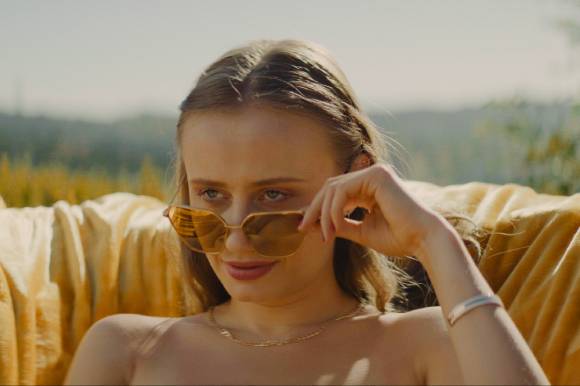 The top ten was rounded out by two Marvel films in the seventh and eighth place – Thor: Love and Thunder (55,337 admissions) and Doctor Strange in the Multiverse of Madness (54,701 admissions), while two animated titles closed the Top Ten: Sonic the Hedgehog 2 (53,927 admissions) and Bad Guys (49,654 admissions).
The top ten was rounded out by two Marvel films in the seventh and eighth place – Thor: Love and Thunder (55,337 admissions) and Doctor Strange in the Multiverse of Madness (54,701 admissions), while two animated titles closed the Top Ten: Sonic the Hedgehog 2 (53,927 admissions) and Bad Guys (49,654 admissions).
The domestic top ten was almost completely dominated by feature films. The three titles mentioned earlier were followed by the literary classic Swamp / Soo by Ergo Kuld. produced by Taska Film, Apollo Film Productions, Kassikuld, with 45,695 admissions; children’s pirate film Erik Stoneheart / Erik Kivisüda by Ilmar Raag, produced by Amrion and Thiltges Film from Luxembourg, coproduced by Lithuania’s Studio Uljana Kim, Ukrainian Esse Production House, Latvia’s Studio Locomotive and Finnish Helsinki-filmi, with 23,952 admissions; and another children’s film The Sleeping Beast / Tagurpidi torn by Jaak Kilmi, produced by Stellar Film, coproduced by Studio Locomotive, with 23,670 admissions.
The remaining four titles stayed well below 10,000 admissions: the youth debut feature Tree of Eternal Love / Kiik, kirves ja igavese armastuse puu (Tallifornia) placed seventh with 5,459 admissions, Kadri Kõusaar’s art house drama Deserted / Kõrb, produced by Meteoriit, coproduced by Swedish MostAlice Film and Finnish Greenlit Productions, came eighth with 3,970 admissions, the short animated film The Old Man and Gasworm / Vanamees ja Põrsauss by Mikk Mägi had 3,332 admissions, while the documentary Two Hours of Happiness / 2 tundi õnneni by Moonika Siimets, produced by Amrion, had 2,303 admissions.
GRANTS
In 2022, the Estonian Film Institute gave out 6,262,300 EUR to various film projects: 2,903,000 EUR was distributed for the production of nine feature films; 297,500 EUR for the development of six feature films; 84,000 EUR as script development grants for 12 feature films; 120,000 EUR for the production of four short films; 80,000 EUR for the development of two miniseries; 710,000 EUR for the production of 14 documentaries, and 123,424 EUR for the development of nine documentary projects.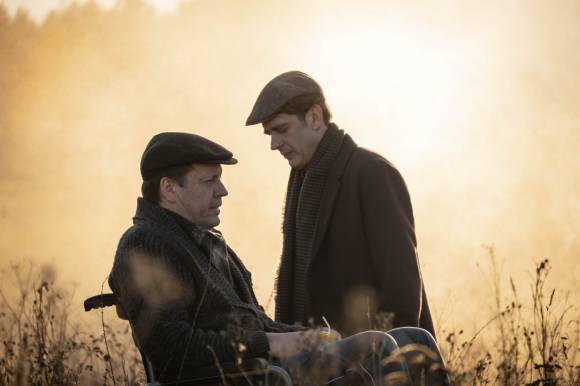
Estonian Stories / Eesti lood, the documentary chronicles and portrait docs, received 111,376 EUR; 44,500 EUR was given for development and postproduction of two documentary series; 11 animated films received 961,000 EUR for production, and eight animated films received development support of 104,000 EUR. A total of 723,500 EUR went to nine minority coproductions.
Production grants went to the following feature films: Dark Paradise / Tume paradiis by Triin Ruumet, produced by Three Brothers, 8 Views of Lake Biwa / Biwa järve 8 nägu by Marko Raat, produced by Allfilm, Stairway to Heaven / Taevatrepp by Mart Kivastik, produced by Filmivabrik, Black Hole / Must Auk by Moonika Siimets, produced by Amrion, Veenus.me by Carmel and Rene Köster, produced by Nafta Films, Lioness / Emalõvi by Liina Trishkina-Vanhatalo, produced by Allfilm, Dog / Koer by Rasmus Merivoo, produced by Tallifornia, Aurora by Andres Maimik and Rain Tolk, produced by Kuukulgur and One-Dimensional Man / Ühemõõtmeline mees by Andres Puustusmaa, produced by LEO Production.
Estonia’s cash rebate programme Film Estonia distributed 5.4 m EUR in 2022, supporting 18 film and TV projects.
TV
The audience numbers of ERR channels ETV, ETV2 and Russian language ETV+, remained more or less on the same level as in 2021, while commercial channels like Kanal 2 and TV3 lost some viewers, who migrated to VOD platforms.
Also, the beginning of war in Ukraine brought steep corrections to the audience’s viewing habits: the entertainment dropped rapidly, while the news programmes and related current affairs programmes rose just as rapidly. In times like this, the audience seems to trust the national broadcast more than commercial channels, so in the first half of the year, those channels gained most from the Ukraine war, when it comes to audience numbers.
CONTACTS:
ESTONIAN FILM INSTITUTE
Uus 3, Tallinn 10111
Phone: +372 627 60 60
Fax: +372 627 60 61
www.filmi.ee
This email address is being protected from spambots. You need JavaScript enabled to view it.
CULTURAL ENDOWMENT OF ESTONIA
Suur-Karja 23, Tallinn 10148
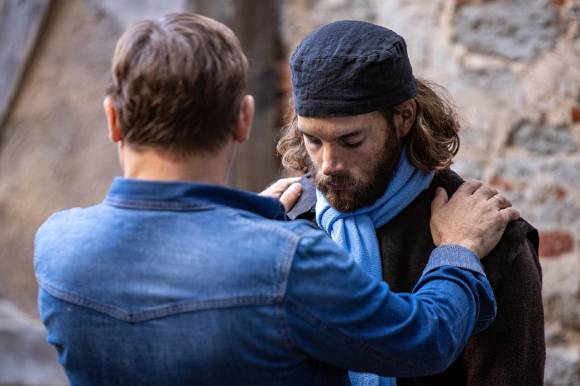 Phone: +372 699 9150
Phone: +372 699 9150
www.kulka.ee
This email address is being protected from spambots. You need JavaScript enabled to view it.
ESTONIAN ANIMATION UNION
Roo 9, Tallinn 10611
www.animaliit.ee
Contact: Mari Kivi
This email address is being protected from spambots. You need JavaScript enabled to view it.
ESTONIAN DOCUMENTARY GUILD
Vilmsi 53g, 10147 Tallinn
www.dokfilm.ee
This email address is being protected from spambots. You need JavaScript enabled to view it.
ESTONIAN FILMMAKERS’ UNION
Uus 3, Tallinn 10111
Phone: +372 646 4068
www.kinoliit.ee
This email address is being protected from spambots. You need JavaScript enabled to view it.
Contact: Kadri Vaas
ESTONIAN NATIONAL PRODUCERS’ UNION
Uus 3, Tallinn 10111
Phone: +372 5825 8962
This email address is being protected from spambots. You need JavaScript enabled to view it.
Contact: Aet Laigu
ESTONIAN FILM INDUSTRY CLUSTER
This email address is being protected from spambots. You need JavaScript enabled to view it.
Contact: Marju Lepp
ESTONIAN SOCIETY OF CINEMATOGRAPHERS ESC
www.esc.edicypages.com/et
ESTONIAN FILM DIRECTORS’ GUILD
This email address is being protected from spambots. You need JavaScript enabled to view it.
Contact: Moonika Siimets and LiinaTrishkina-Vanhatalo
ESTONIAN SCRIPT-WRITERS’ GUILD
Eesti Stsenaristide Gild:
This email address is being protected from spambots. You need JavaScript enabled to view it.
Contact: Lauri Lippmaa
THE ASSOCIATION OF PROFESSIONAL ACTORS OF ESTONIA
Uus 5, Tallinn 10111
Phone: +372 646 4517
Fax: +372 646 4516
www.enliit.ee
This email address is being protected from spambots. You need JavaScript enabled to view it.
THE ESTONIAN FILM JOURNALISTS’ASSOCIATION
Narvamnt 11e, Tallinn 10151
Phone: +372 669 8210
www.filmikriitik.ee
This email address is being protected from spambots. You need JavaScript enabled to view it. ; This email address is being protected from spambots. You need JavaScript enabled to view it.
Contact: Andrei Liimets
THE UNION OF ESTONIAN FILM CLUBS
Vikerlase 13-62, Tallinn 13616
Phone: +372 632 4662; +372 55 46042
This email address is being protected from spambots. You need JavaScript enabled to view it.
Contact: Raivo Olmet
 ESTONIAN FILM MUSEUM
ESTONIAN FILM MUSEUM
Pirita road 56, 10127 Tallinn
Phone: +372 6 968 600; +372 5620 8875
http://www.ajaloomuuseum.ee/en/filmmuseum
This email address is being protected from spambots. You need JavaScript enabled to view it.
Contact: Karlo Funk
ESTONIAN FILM DATABASE
Koidu 17-1, 10137 Tallinn
Phone: +372 6015982
This email address is being protected from spambots. You need JavaScript enabled to view it.
www.efis.ee/en
ESTONIAN FILM ARCHIVES
Ristiku 84, Tallinn 10318
Phone: +372 693 8613
www.filmi.arhiiv.ee/index.php?lang=eng
This email address is being protected from spambots. You need JavaScript enabled to view it.
Report by Tristan Priimägi (2023)
Sources: the Estonian Film Institute, the Cultural Endowment of Estonia
Hungary
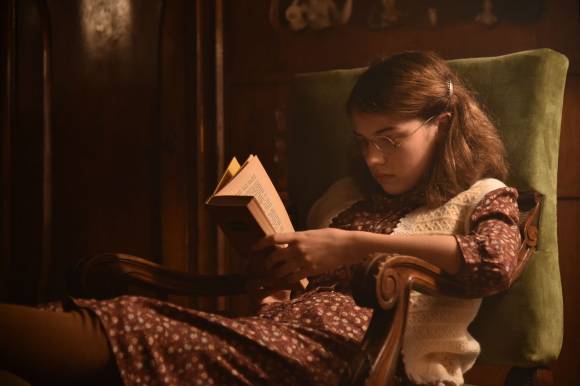 MARKET ANALYSIS 2020
MARKET ANALYSIS 2020
BUDAPEST: The year 2020 started as a good one. The National Film Institute – Hungary (NFI) was established in January 2020 as the successor of the Hungarian National Film Fund, and Barnabás Tóth's historical drama Those Who Remained / Akik maradtak, produced by Inforg-M&M Film, got on the short list in the Academy Awards' International Feature Film category. The film didn't make it into the nominations' list and with the outbreak of the Coronavirus pandemic the Hungarian film industry faced serious challenges.
Luckily, there was also good news. Kornel Mundruczó's first English language film Pieces of a Woman, produced by BRON Studios (Canada) in coproduction witth Little Lamb (Canada) and Proton Cinema (Hungary), was invited into the main competition of the Venice Film Festival, and it is among the Academy Awards 2021 contenders for a nomination in various categories.
Preparations to Be Together For an Unknown Period of Time / Felkészülés meghatározatlan ideig tartó együttlétre, directed by Lili Horvát and produced by Poste Restante, has been invited to many festivals and the star of the film Natasa Stork has been collecting awards.
PRODUCTION
The National Film Institute – Hungary (NFI) was established in January 2020 as the successor of the Hungarian National Film Fund. The previous grant systems were unified, since in 2020 not only feature films, but also documentaries, television and short films were supported by the NFI. As part of its new policy, the NFI wants to put greater emphasis on coproductions.
In 2020 the NFI gave out 21.6 m EUR / 7.7 billion HUF to 185 feature film applications, and 19.1 m EUR / 6.8 billion HUF to television and streaming projects. Ten films supported by the NFI debuted in cinemas and festivals in 2020.
The production of 12 Hungarian feature films supported by the NFI started and finished in 2020. The pandemic caused the biggest problem for the romantic fantasy film Half Way Home / Átjáróház directed by Isti Madarász and produced by FocusFox. With the introduction of the state of emergency the shooting had to be stopped in March 2020, and it could only continue in June 2020. Half Way Home tells the story of two lovers who get stuck between life and death.
The filming of the thriller The Game / A játszma, helmed by Péter Fazakas and produced by Filmpositive, came to an end in 2020. The film continues the story of the spies introduced in the hit film The Exam / A vizsga (2011) by Péter Bergendy, produced by Unió film, and is set six years later, in 1963, when the Hungarian secret service starts a more twisted and more dangerous game than ever before.
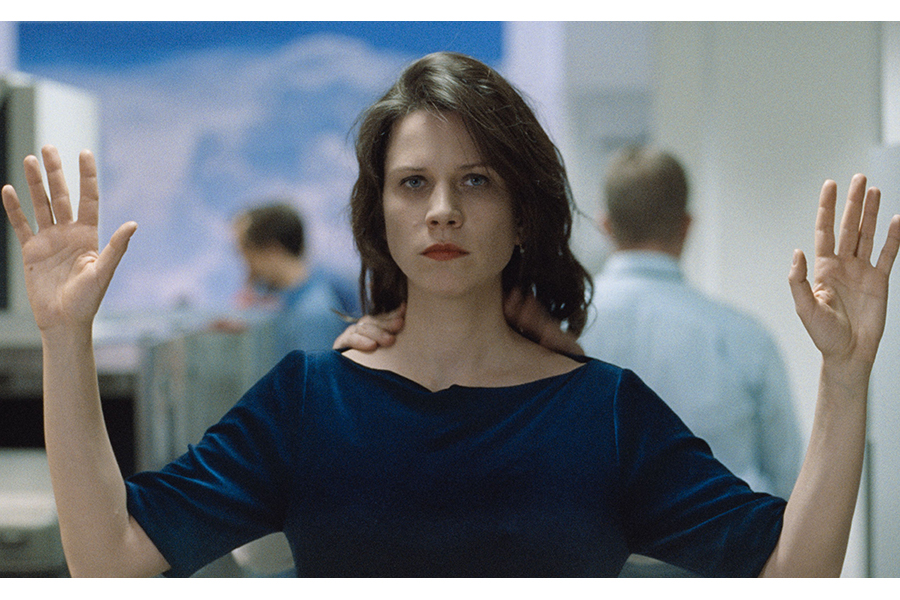 Gabor Fabricius’s debut feature Erasing Frank / Eltörölni Frankot, produced by Otherside Stories in coproduction with Frank Production, will also take the audience back to the communist era, showing how psychiatric institutions used to oppress the enemies of the state.
Gabor Fabricius’s debut feature Erasing Frank / Eltörölni Frankot, produced by Otherside Stories in coproduction with Frank Production, will also take the audience back to the communist era, showing how psychiatric institutions used to oppress the enemies of the state.
Academy Award-winner Kristóf Deák finished shooting The Grandson / Az unoka, a thriller and coming-of-age film with shades of black comedy produced by Flashback Media. The film follows a 28 year old office worker Rudi, who takes the law into his own hands after realising that his beloved grandfather was a victim of a cruel fraud.
The principal photography of Daddy and Other Wolves / Szia, Életem as well as Stop My Stepmom! / El a kezekkel a papámtól! went underway in the summer of 2020. The first depicts the changing life of a popular but burned out writer, who meets his little son for the first time. This comedy is directed by Gábor Rohonyi and Csaba Vékes, and produced by Filmteam in coproduction with Blue Duck Arts and Grund. The latter is a big-budget family film with music and fantasy elements. It is directed by Kata Dobó and Buda Gulyás, and produced by Megafilm.
Ádám Császi finished shooting his sophomore feature Three Thousand Numbered Pieces / Háromezer számozott darab, a mix of fiction, absurdity and sociographic reality, produced by Unió Film. It depicts the fate of young Romany people whose lives have been in a free fall.
Four young directors were given the opportunity to realise their first long film. Szilárd Bernáth’s Larry, produced by Focus Fox, follows the career of a rapper coming from a tough neighborhood and fighting with serious stuttering. Ice Cream Could Be Dangerous / Veszélyes lehet a fagyi, directed by Fanni Szilágyi and produced by Filmpartners, is a magical realistic drama about a pair of identical twins who became estranged from each other.
Cristina Groșan`s Things Worth Weeping For / A legjobb dolgokon bőgni kell, produced by Laokoon Film, follows a 30 years old woman who is trying to find out what she really wants from life during a long night, while Máté Fazekas' Eviction / Kilakoltatás, produced by FP Films in coproduction with Sparks and Filmfabriq, is a satirical comedy and shows a conflict between a bum-bailiff and an old lady who doesn't want to leave her home.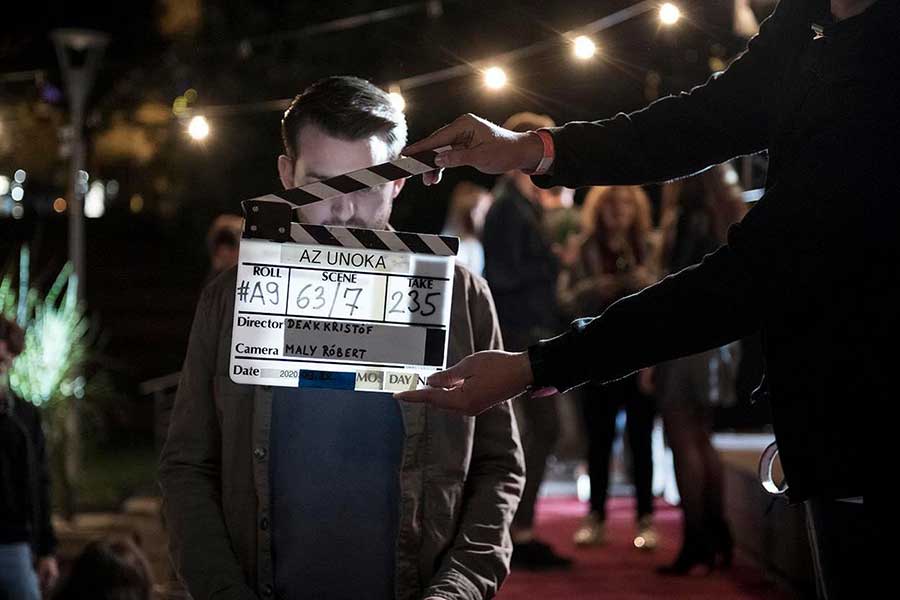
Production on Filmfabriq’s The Christmas Flame / Nagykarácsony started at the end of 2020 and the works are underway in the first months of 2021. Dániel Tiszeker is making an uplifting and emotional Christmas film about a fireman.
The production of Katinka, the most expensive Hungarian documentary film ever, didn't halt during the spring lockdown and the shooting continues in 2021. Directed by Norbert Pálinkás and produced by Szupermodern, the documentary follows the preparations of the three-time Olympic champion Katinka Hosszú for the 2021 Tokyo Olympics.
In 2020 the NFI, which is more supportive of coproductions than its predecessor, backed eight coproductions, including Anthony Fabian's Mrs. Harris Goes to Paris, produced by Moonriver Content (UK) in coproduction with Superbe Films (France) and Hero Squared (Hungary), where Budapest doubles for the French capital. Lesley Manville and Isabelle Huppert, as well as Lucas Bravo and Baptista Alba are starring.
The filming of Gentle Monster / Jámbor szörnyeteg produced by FocusFox (Hungary) in coproduction with Komplizen Film (Germany) started in November 2020. László Csuja and Anna Nemes tell the tragic story of a woman bodybuilder who gets into a love triangle. The Hungarian/Vietnamese coproduction Budapest, Where the Love Starts / Budapest, ahol a szerelem kezdődik, produced by Solve Art, finished the Hungarian segment of the shooting in November 2020 and is aiming for a March 2021 shooting in Hanoi, Vietnam.
The following coproductions with minority Hungarian participation also received production grants in 2020: Scirocco directed by Yassine Marco Marroccu and produced by Eclipse Film (Morocco) in coproduction with Mirage Film (Hungary); Black Spider directed by Markus Fischer and produced by Snakefilm (Switzerland) in coproduction with Laokoon Cinema (Hungary); John Vardar vs. Galaxy directed by Gore Cvetanovski and produced by Lynx Animation (North 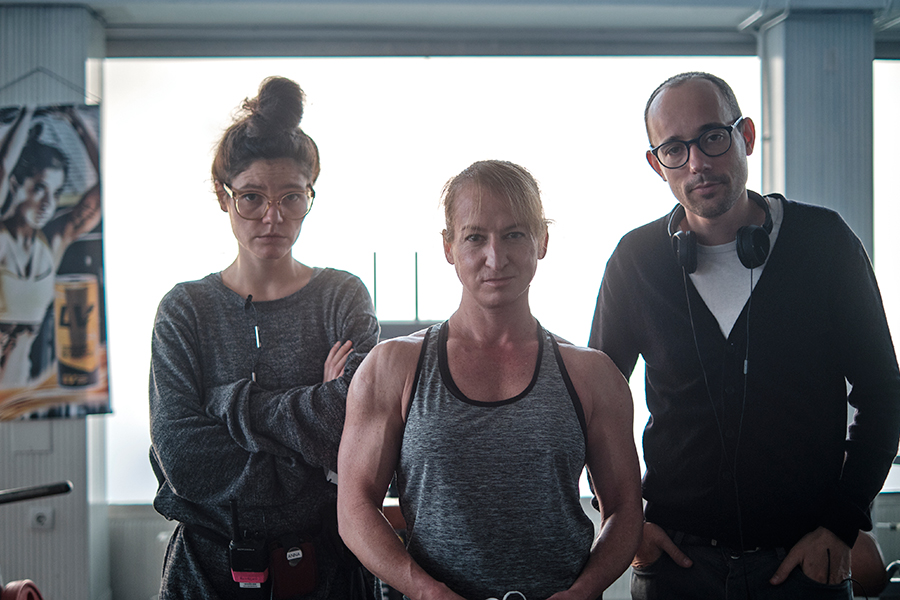 Macedonia) in coproduction with Umatik (Hungary); The Servant directed by Marian Crișan and produced by Rova Film (Romania) in coproduction with Chainsaw Europe (Romania) and Focus Fox (Hungary); Battle: Freestyle directed by Ingvild Soderling and produced by Friland Produksjon (Norway) in coproduction with Proton Projekt (Hungary).
Macedonia) in coproduction with Umatik (Hungary); The Servant directed by Marian Crișan and produced by Rova Film (Romania) in coproduction with Chainsaw Europe (Romania) and Focus Fox (Hungary); Battle: Freestyle directed by Ingvild Soderling and produced by Friland Produksjon (Norway) in coproduction with Proton Projekt (Hungary).
Independent productions were also shooting in 2020. György Pálfi finished his long gestating project, the dystopian love story For Ever / Mindörökké, produced by KMH Film. Most of the film was shot in 2015 and a couple of additional scenes were shot in 2020. Moreover, György Pálfi also made a low budget action film in 2020, Hotel Balaton (KMH Film), starring the International Emmy-winner Marina Gera.
Hungary became popular with foreign productions thanks to the world-class studios, the experienced local crews, the 30% tax rebate and the unique qualities of Budapest. It is the second most popular location for Hollywood films in Europe, after London. In 2019, which was a record breaking year, the amount of money spent directly on film productions (460.7 m EUR / 164.4 billion HUF) increased by 40% compared to 2018.
The year 2020 showed a significant decline because of the pandemic. The NFI reacted quickly to the new challenges caused by the COVID-19 pandemic, introducing safety regulations and easing the entry of US cast members. Due to these measures, productions only stopped for a few months in the spring of 2020 and they could resume work in June 2020. The second wave reached Hungary in the autumn, but it didn’t interrupt the ongoing shootings.
The principal photography of Dune, produced by Legendary Entertainment in coproduction with Warner Bros. was practically completed in 2019, but the director Denis Villeneuve and his crew came back to shoot a few additional scenes at the Origo studios in the summer of 2020.
The Unbearable Weight of Massive Talent directed by Tom Gormican, produced by Lionsgate in coproduction with Saturn Films, and starring Nicholas Cage, as well as the ballet drama Birds of Paradise directed by Sarah Adina Smith and produced by Amazon Studios in coproduction with Anonymous Content, also chose Origo and were able to resume work in August 2020. The production of Birds of Paradise had halted in March 2020.
The sci-fi television series Halo directed by Otto Bathurst and produced by Microsoft in coproduction with Showtime Networks went into production in 2019 and continued in 2020 at the Korda Studios.
State-owned Mafilm Studios serviced the German Netflix series Terra Vision directed by Robert Thalheim.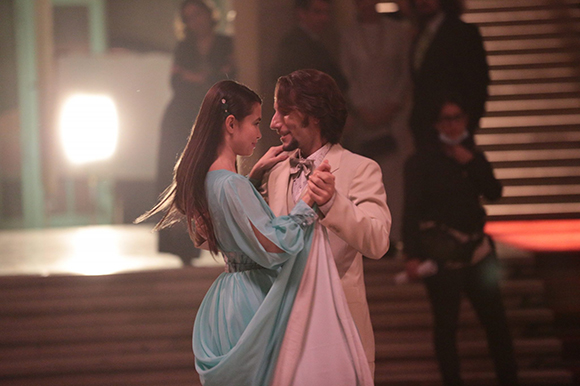
Sensing the increasing demand, the NFI started to significantly expand the Mafilm Studios, and the four new studios will be fully operational in 2022.
COVID GOVERNMENT SUPPORT
The National Film Institute - Hungary has been working on job opportunities for film professionals during the pandemic. The evaluation of applications was continuous and no shooting failed because they rescheduled the financing of the ongoing productions at the beginning of the pandemic in March 2020.
Hungary didn’t ban shootings with the introduction of the state of emergency. The work could resume but the crew had to follow strict health protection measures. The NFI published a health protection plan helping the productions. The casts and crews were tested regularly, protective equipment was provided for everybody, the number of people on location was minimised and compliance with hygiene rules was monitored.
The Hungarian film industry reacted quickly to the challenges caused by the pandemic and the local studios introduced an effective anti-COVID protocol. When the European Union banned the entry of non-EU residents in June 2020, Hungary granted special exemptions to US casts and crews, making it possible to restart production at full capacity. After the spring shutdown, Hungary was one of the first countries where foreign productions came back and resumed work.
The enterprises in the film industry were fully exempted from paying taxes based on their wages for a limited time. The measure was taken to ease the crisis caused by the Coronavirus. The National Film Institute - Hungary was granted 1 billion HUF by the National Cultural Council as part of their financial package compensating the difficulties of the cultural sphere. The fund was allocated to help theatres and filmmakers, and it was used to produce „crossover” films based on stage plays and filmed outside the theatres.
Intercom is the leading distribution company in Hungary. In 2020 Intercom had 13 films in cinemas, of which three got into the top ten. The biggest success of the year Bad Boys For Life, and the most watched Hungarian feature film Budapest Heist / Pesti Balhé directed by Balázs Lóth and produced by FP Films, were also distributed by Intercom.
UIP Duna Film released nine films, four of which entered the top ten. None of them was Hungarian. Forum Hungary and Freeman Film also deal mainly with foreign titles. Mozinet, the biggest distributor of art house films, released eight titles in 2020, including one domestic title - Preparations to Be Together For an Unknown Period of Time / Felkészülés meghatározatlan ideig tartó együttlétre directed by Lili Horvát and produced by Poste Restante.
Magyarhangya, Cirko Film and Budapest Film also specialised in art house films.
The domestic surprise hit of 2019, Those Who Remained / Akik maradtak directed by Barnabás Tóth and produced by Inforg-M&M Film, has been sold by NFI World Sales to many countries, including the United States (Menemsha Films), where it was released on 21 February 2020, and Japan (Synca) with the release date of 18 December 2020.
Numerous prestigious film festivals had Hungarian titles in their programme. Kornél Mundruczó’s first English language feature Pieces of Woman was invited to the main competition of the 77th Venice Film Festival, where Vanessa Kirby won the Coppa Volpi for best actress. The drama was produced by BRON Studios (Canada) in coproduction with Little Lamb (Canada) and Proton Cinema (Hungary).
Preparations to Be Together For an Unknown Period of Time also had its world premiere in Venice, followed by its North American premiere at the Toronto IFF. Lili Horvath’s film was eventually selected as Hungary's candidate for the 93rd Academy of Motion Picture Arts and Sciences award in the Best International Feature Film category. The film was released in the USA by Greenwich Entertainment on 22 January 2021.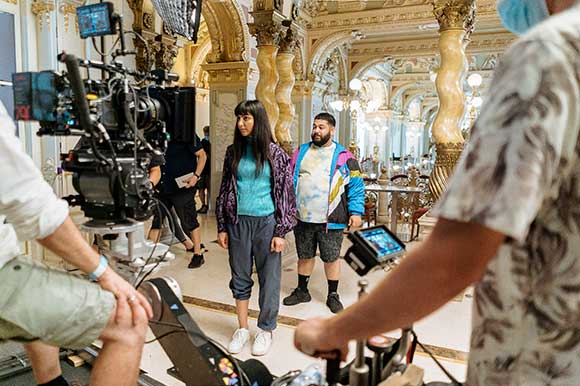
The presence of Hungarian titles at the Warsaw Film Festival was even bigger than usual, with world premieres of Spiral directed by Cecilia Felméri and produced by Hungary’s Inforg M&M Film in coproduction with Hungary’s FocusFox Studio and Romania’s Hai-Hui Entertainment, Post Mortem directed by Péter Bergendy and produced by Szupermodern, and Seven Small Coincidences / Hét kis véletlen directed by Péter Gothár and produced by Filmpartners.
Nadja Andrasev’s short film Symbiosis was invited to many festivals and among other awards it was chosen as the best short animation at the South by Southwest Festival in Austin, Texas (USA), qualifing for the 2021 Academy Awards in the best live action short film category.
EXHIBITION AND BOX OFFICE
The number of officially registered cinemas in 2020 was 221 and the number of screens was 469.
The Hungarian domestic box office fell by 62% in 2020. The total gross of Hungarian films was 2.3 m EUR / 838 m HUF in 2019, but it fell to 888,126 EUR / 320.1 m HUF in 2020.
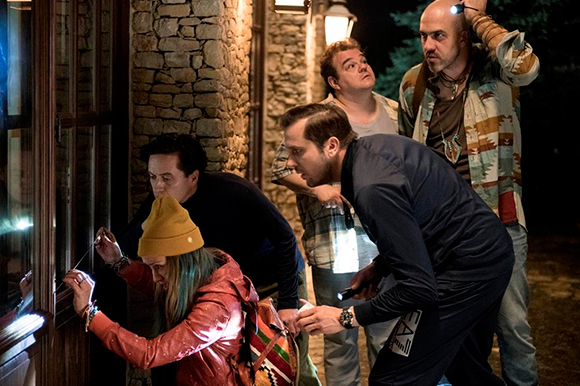 The admissions dropped from 595,587 in 2019 to 224,763 in 2020.
The admissions dropped from 595,587 in 2019 to 224,763 in 2020.
The number of domestic premieres also decreased from 26 in 2019 to 16 in 2020.
The year 2020 was a nightmare for Hungarian cinemas, which had to close two times because of the pandemic, first on 11 March followed by a re-opening during the second half of June. Operations had to be suspended again on 11 November. Cinemas were closed for five months, and it isn’t certain when they will re-open in 2021. The National Film Institute - Hungary supported cinema operators with 834,600 EUR / 300 m HUF within the “Back to the Cinema – Watch Hungarian Films in July” initiative.
Many films, some with great gross expectations, were postponed for 2021, including Toxikoma directed by Gábor Herendi and produced by TulipánTündér Produkció, Bullhorn Lullaby / Becsúszó szerelem directed by Viktor Oszkár Nagy and produced by Campfilm, and Perfect as You Are / Így vagy tökéletes directed by Péter Varsics and produced by Szupermodern.
The biggest Hungarian success of 2020 was Budapest Heist / Pesti balhé directed by Balázs Lóth and produced by FP Films. The heist comedy, which was released by InterCom on 30 July, grossed 304,441 EUR / 109.7 m HUF and racked up 74,008 admissions. To put it into perspective, a similarly lighthearted film, Kölcsönlakás directed by Kata Dobó, produced by Kölcsönlakás produkció and distributed by Intercom, topped the domestic chart in 2019 with 607,262 EUR / 218.9 m HUF and 150,776 admissions.
A couple other Hungarian films from 2020 are worth mentioning in terms of gross. Oscar-winner István Szabó's supposedly farewell film Final Report / Zárójelentés, produced by Film Street and Filmkontroll, and released by InterCom on 27 February, ended its run with 121,809 EUR / 43.9 m HUF and 33,255 admissions, while the romantic comedy Cream / Hab directed by Nóra Lakos, produced by AGA Media and A Company Hungary, and released by InterCom on 10 September, collected 102,744 EUR / 37 m HUF and 26,271 admissions.
Hungary's official bid at the Academy Awards, Preparations to Be Together for an Unknown Period of Time / Felkészülés meghatározatlan idejű együttlétre, released by Mozinet on 24 September 2020, reached 77,222 EUR / 27.8 m HUF and 19,430 admissions by the time cinemas closed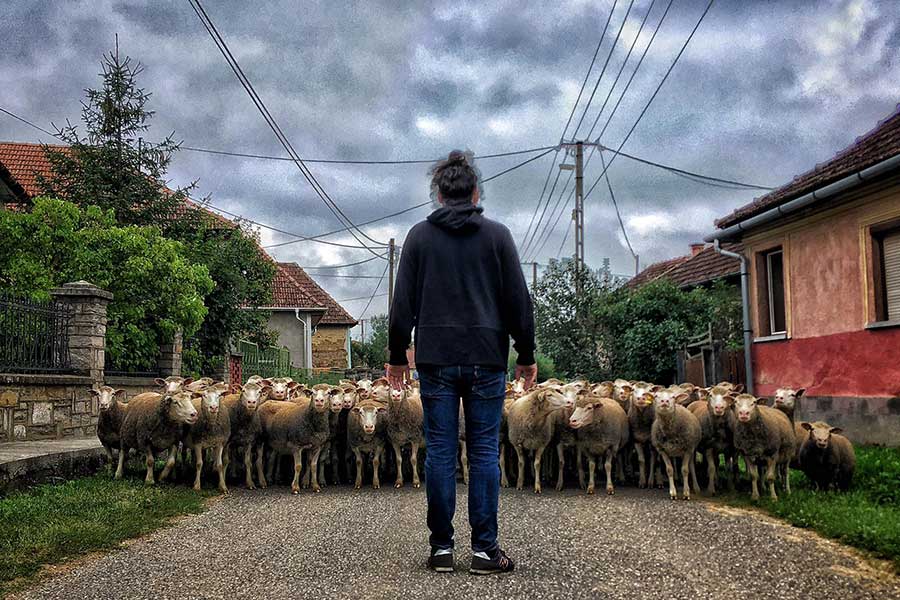 again in November 2020.
again in November 2020.
The general box office suffered an even bigger blow and decreased by 70.1% from 2019 to 2020. The total gross was 59.2 m EUR / 21.3 billion HUF in 2019, and only 17.7 m EUR / 6.4 billion HUF in 2020.
A total of 293 films came out in 2019, but only 89 were theatrically released in 2020.
The American action comedy Bad Boys for Life was the highest grossing film in 2020, with 1.6 m EUR / 570.7 m HUF and 345,915 admissions.
VOD PLATFORMS AND ONLINE DISTRIBUTION
Online distribution saw a breakthrough in 2020. Three new domestic streaming services were launched and an unprecedented number of Hungarian titles became available online.
Budapest Film reacted to the closing down of cinemas with the launch of Remote Cinema on 21 April 2020, a pay-per-view live streaming platform specifically designed to fill in for real cinema experiences. Unlike usual video on-demand customers, Remote Cinema’s online viewers can’t save or download, rewind or pause the show. They purchase their tickets for a particular time and date and watch the film as a community. Seven Small Coincidences directed by Péter Gothár and produced by Filmpartners, screened for the first time in Hungary on Remote Cinema.
Cinego, the only domestic streaming platform specialised in art house titles, was launched in May 2020. It offers titles from the selections of the top festivals as well as remarkable Hungarian films from the last couple of years. A total of 280 feature films are currently available, of which 38 are Hungarian. Preparations to Be Together For an Unknown Period of Time went online on 1 December 2020 and became the most popular domestic title of the year on Cinego.
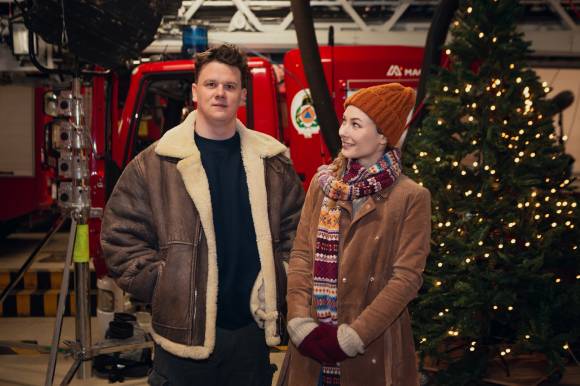 On 19 November 2020 the NFI launched Filmio, a platform streaming Hungarian films. More than 230 productions were made available, including 169 feature films, 50 animated films and 11 documentaries. "We've repaid an old debt with launching Filmio," Hungary's Film Commissioner Csaba Káel said in a statement. "A platform was missing where the audience could find a significant part of the Hungarian film production in one package, legally and in excellent quality''.
On 19 November 2020 the NFI launched Filmio, a platform streaming Hungarian films. More than 230 productions were made available, including 169 feature films, 50 animated films and 11 documentaries. "We've repaid an old debt with launching Filmio," Hungary's Film Commissioner Csaba Káel said in a statement. "A platform was missing where the audience could find a significant part of the Hungarian film production in one package, legally and in excellent quality''.
Treasure City / Békeidő directed by Szabolcs Hajdu and produced by Látókép Production became the first Hungarian feature film that skipped theatrical release and immediately debuted online. The film could be rented on Vimeo starting 23 April 2020. Between six and seven thousand people watched it in the first four days, according to its director Szabolcs Hajdu.
Netflix dominates the local market, like in the rest of the world. Hungarian subscribers, who can currently choose from 45 domestic titles, spent 4.5 as much time watching Netflix in 2020 as in 2019. Mihály Schwechtje's first feature film I Hope You'll Die Next Time / Remélem legközelebb sikerül meghalnod, produced by Amego Film, was one of the most popular choices in the thriller category.
Unlike in Poland, Netflix didn’t start investing money into local productions, but bought the distribution rights of Kornel Mundruczo’s first English language film Pieces of a Woman. The streaming giant also bought Malcolm & Marie directed by Sam Levinson and lensed by the Hungarian cinematographer Marcell Rév.
HBO GO has been available in Hungary since 2011 and currently offers 41 domestic productions, including 20 feature films, 18 documentaries and three series. HBO’s documentary Return to Epipo / Visszatérés Epipóba by Judit Oláh, which tackles the sensitive topic of child abuse at a summer camp, was the most popular Hungarian title on HBO GO in 2020.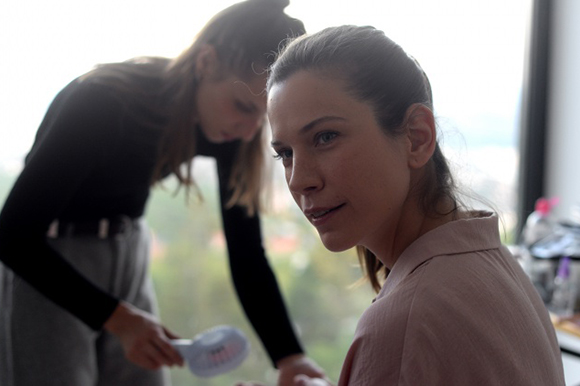
GRANTS AND NEW LEGISLATION
In 2020 the Decision Making Board of the National Film Institute – Hungary granted 21.6 m EUR / 7.7 billion HUF as production grants. A total of 300 feature film applications were processed, 185 were backed and 27 projects were given production support. Eleven feature films were granted marketing support.
The NFI announced nine new applications for television and streaming productions. Almost 1,700 applications were sent in and the Television Decision Making Board supported 158 applications and granted 19.1 m EUR / 6.8 billion HUF for television films, series, animations, educational films and documentaries.
A new type of tender was introduced by the NFI for supporting theatres in 2020. Sixteen theatres received funds to make „crossover” films based on plays with the cooperation of the film industry.
TV
RTL Hungary and TV2 Media Group can both consider their main channels (RTL Klub and TV2) the winners of 2020. According to Media1, RTL Klub had the most viewers in prime-time and TV2 won based on the whole day ratings.
The yearly top 20 chart of television programmes, based on the 18-49 age group, includes ten RTL Klub and eight TV2 programmes. These are both commercial channels, while the public 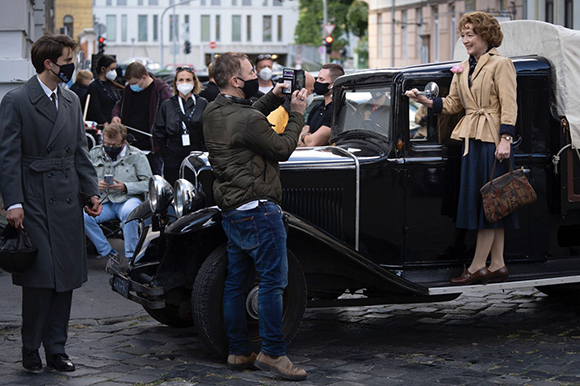 service media had only two programmes in the top 20. RTL Klub topped the chart with a reality singing competition The Masked Singer.
service media had only two programmes in the top 20. RTL Klub topped the chart with a reality singing competition The Masked Singer.
Side Effect / Mellékhatás by Dániel Richárd Kovács, RTL Klub's first thriller series based on an original idea, started to air on 4 April 2020. The first episode became the ninth most watched programme in 2020.
RTL Klub also introduced a comedy series called Apatigris directed by Attila Herczeg, the first episode finishing in the sixth place in the yearly top 20 chart.
It was announced in 2020 that Hungary's longest running soap opera Barátok közt will come to an end in 2021. The first episode was aired in 1998 on RTL Klub.
TV2 had new comedy series in 2020: Egyszer volt Budán Bödör Gáspár directed by Márk Radnai, and Doktor Balaton helmed by multiple directors. The first started very promising and the pilot was the third most watched programme in 2020. Both channels made their own fictional lockdown mini-series depicting life during the pandemic. RTL Klub produced Segítség! Itthon vagyok! directed by Iván Kapitány, while TV2 named its programme #maradjotthon, and they both aired during the spring of 2020.
CONTACTS
NATIONAL FILM INSTITUTE – HUNGARY
1145 Budapest Róna u. 174 N. building
Phone: +36 1 461 1320
This email address is being protected from spambots. You need JavaScript enabled to view it.
www.nfi.hu
NATIONAL FILM OFFICE – HUNGARY
1027 Budapest, Kacsa u. 15-23.
Phone: +36 1 327 7070
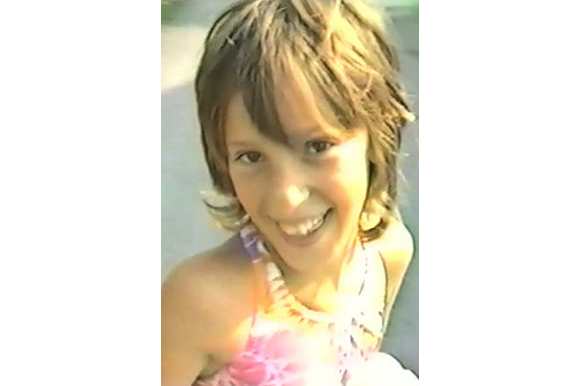 NATIONAL MEDIA AND COMMUNICATIONS AUTHORITY
NATIONAL MEDIA AND COMMUNICATIONS AUTHORITY
1015 Budapest, Ostrom u. 23-25.
Phone: + 36 1 457 7100
This email address is being protected from spambots. You need JavaScript enabled to view it.
www.nmhh.hu
HUNGARIAN CABLE TELEVISION AND TELECOMMUNICATION ASSOCIATION
1012 Budapest, Logodi u. 44/C/1.
Phone: +36 30 639 8328
www.ktv.hu
This email address is being protected from spambots. You need JavaScript enabled to view it.
Report by Denes Varga (2021)
Latvia
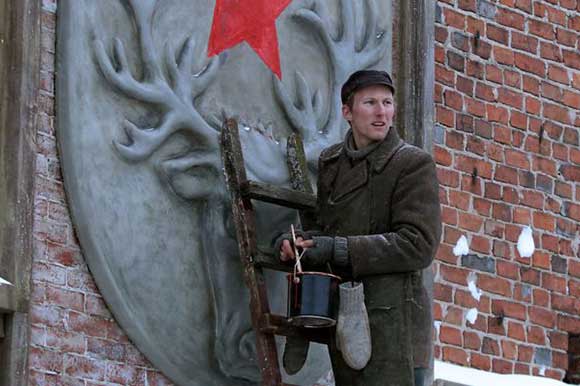 MARKET ANALYSIS 2020
MARKET ANALYSIS 2020
RIGA: Latvian film industry experienced disruptions due to the COVID-19 pandemic since mid-March 2020. The cinemas were closed from 13 March to 9 June and from 9 November until the end of 2020 (the closure being effective until 7 February 2021). Due to the COVID-19 restrictions, film production was subject to special precautions.
Domestic films were released in cinemas and online, with some of them postponed for 2021. Viesturs Karišs’ historical drama The Sign Painter / Pilsēta pie upes, produced by Latvia's Ego Media in coproduction with Czech 8Heads Productions and Lithuania's Artbox, dominated the box office in early 2020 after its release on 15 January, but it was soon moved to online platforms.
Admissions dropped by 67% compared to 2019, but three domestic productions were in box office Top 10: The Sign Painter in the top position, followed by The Class Reunion / Klases salidojums produced by Cinevilla Films in the second position, while Blizzard of Souls / Dvēseļu putenis produced by Kultfilma, which was number 1 in 2019, closed the top 10 list in 2020.
Internationally, Ilze Burkovska-Jacobsen’s long animated film My Favourite War / Mans mīļākais karš, produced by Norwegian Bivrost Film & TV and Latvian Ego Media, won 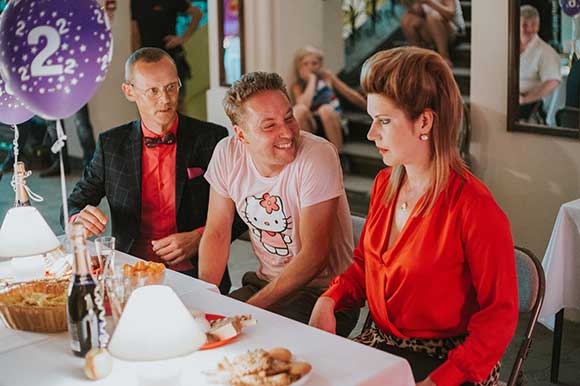 the main award in the Contrechamp competition of the Annecy IAFF, and was screened widely at international film festivals throughout the year.
the main award in the Contrechamp competition of the Annecy IAFF, and was screened widely at international film festivals throughout the year.
PRODUCTION
Twenty eight feature films, 12 animated films, 25 documentaries and two miniseries were in production in 2020 with the support of the National Film Centre of Latvia. Among them, two animated films, six documentaries and eight feature films were minority coproductions.
The fiction films in production included: Lame-o’s / Tizlenes directed by Marta Elīna Martinsone and produced by Ego Media, Samuel’s Travels directed by Aik Karapetian and produced by Latvian Mistrus Media in coproduction with Belgium's Polar Bear, Soviet Milk / Mātes piens directed by Ināra Kolmane and produced by Film Studio Deviņi, Troubled Minds / Nemierīgie prāti directed by Lauris Ābele and Raitis Ābele, and produced by Tritone Studio, Lovable / Mīlulis directed by Staņislavs Tokalovs and produced by Tasse Film.
Among the documentaries in production there were: Homes / Mājas directed by Laila Pakalniņa and produced by Kompānija Hargla, Podnieks on Podnieks / Podnieks par Podnieku directed by Anna Viduleja and produced by Jura Podnieka Studija, and My Mother the State / Mana māte valsts directed by Ieva Ozoliņa and produced by Latvian Fa Filma in coproduction with Iceland's Republik.
COVID GOVERNMENT SUPPORT
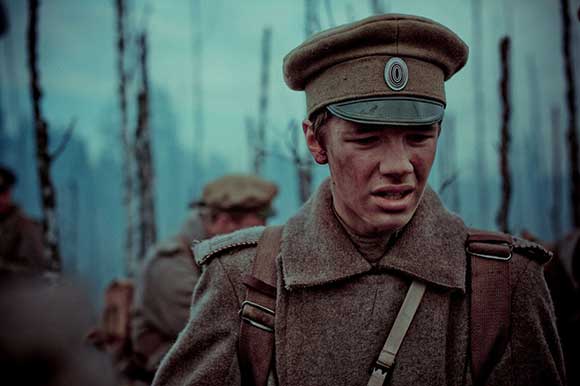 The National Film Centre received 2 m EUR from the state contingency fund. From this amount, 800,000 EUR were distributed for the support of projects already in production, to cover the expenses necessary for following the epidemiological conditions and to compensate for losses connected with coproductions. Sixteen projects in production with the National Film Centre’s financing received 600,000 EUR in total, but 200,000 EUR went to seven projects produced without the Centre’s financing.
The National Film Centre received 2 m EUR from the state contingency fund. From this amount, 800,000 EUR were distributed for the support of projects already in production, to cover the expenses necessary for following the epidemiological conditions and to compensate for losses connected with coproductions. Sixteen projects in production with the National Film Centre’s financing received 600,000 EUR in total, but 200,000 EUR went to seven projects produced without the Centre’s financing.
A total of 180,000 EUR were allocated to funding the production of new low-budget fiction films, and two projects were supported. The largest amount, 1 m EUR, was distributed to the production of two miniseries projects to be released in 2021.
Specific support schemes were available at the Culture Capital Foundation of Latvia for companies and individuals experiencing losses because of the restrictions connected to the COVID-19 pandemic.
DISTRIBUTION
A total of 245 films were distributed in 2020 (compared to 319 in 2019), 41 domestic films, 102 European non-national films, 83 US productions, and 19 films from other territories.
The leading distribution companies in the country are regional Baltic distributors: Forum Cinemas, Latvian Theatrical Distribution, Acme Film, A-One Films Latvia, VLG Filmas, Garsu Pasaulio irasai, and BestFilm. However, Forum Cinemas Distribution left the market in May 2020.
Regional commercial distribution in the areas without permanent cinemas is handled by Kinopunkts, which screens films in nearly 150 places, and Kino visiem un visur 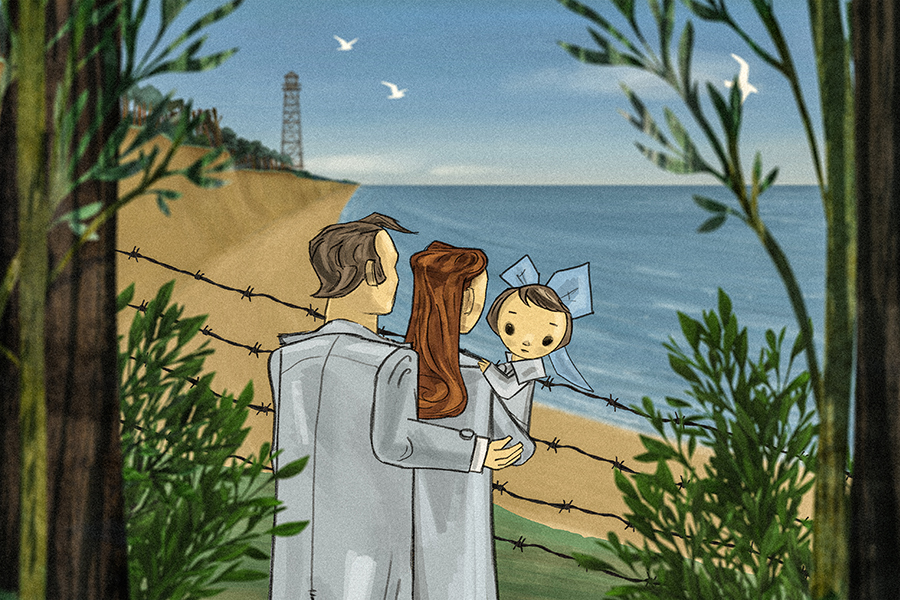 Latvijā (an activity of the Latvian Filmmakers Union), which screens films in almost 100 places. They are supported by the Culture Capital Foundation of Latvia.
Latvijā (an activity of the Latvian Filmmakers Union), which screens films in almost 100 places. They are supported by the Culture Capital Foundation of Latvia.
Small cinema initiatives focusing on the distribution of independent and art house films, such as Kino Bize and Kino Spektrs, which emerged in 2014 and 2015, continued their activity in 2020.
Conference / Konferentsya by the Russian director Ivan I. Tverdovky won Best Feature Film at the 7th Riga International Film Festival (15-25 October 2020).
The best national fiction film award announced at the Latvian National Film Awards (12-15 November 2020) went to Blizzard of Souls / Dvēseļu putenis directed by Dzintars Dreibergs and produced by Kultfilma. The best long documentary was Latvian Coyote / Valkātājs directed by Ivars Zviedris and produced by Dokumentālists.
The Documentary Film Festival Artdocfest in Riga postponed its physical edition and organised online screenings instead. The International Short Film Festival 2 Annas took place 10-16 February 2020. The actors’ film festival Baltijas Pērle took place 7-13 October 2020, and the Baltic Sea Forum for Documentaries was held in a hybrid form from 29 August to 6 September 2020.
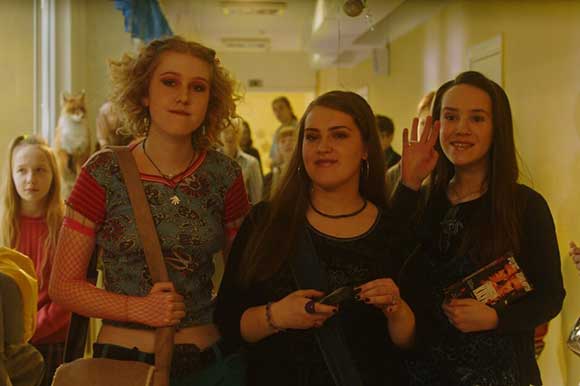 VOD PLATFORMS AND ONLINE DISTRIBUTION
VOD PLATFORMS AND ONLINE DISTRIBUTION
The Internet platform Filmas.lv, the biggest Latvian film database launched in 2015, provides a catalogue of 2,778 films going back to the 1920s. A total of 236 films are available free of charge for viewing on any device in Latvia. Special events were organised to make the films available internationally for a limited period of time, due to copyright restrictions. The project is supported by the National Film Centre of Latvia in cooperation with the Culture Information Systems Centre.
In 2020 cinema Kino Bize operated its home cinema as well as an online exhibition platform with films from the cinema’s catalogue.
The database Filmas.lv expanded its offer, devising a new section, Latvian Film Classics, which is available worldwide free of charge with English subtitles. It includes 19 films, of which 13 are feature films. All films have been digitally restored.
During the closure of theatres in 2020, the theatre company New Riga Theatre / Jaunais Rīgas teātris produced a 10-episode miniseries featuring its actors. The series Agency / Aģentūra is a psychological detective thriller set in an advertising agency in Riga in the summer of 2020. A separate VOD platform, agentura.jrt.lv, has been created for the purpose of streaming the series.
EXHIBITION AND BOX OFFICE
Latvia had 18 cinemas (including three multiplexes) with 69 screens and 60 digital screens (28 3D screens) throughout the country at the end of 2020.
The number of multiplexes decreased from five to three compared to 2019, as two of the multiplexes didn’t reopen after the first closure of cinemas in March. They had 12 screens in total – four in Daugavpils (Silver Screen) and eight screens in Riga (Multikino).
Total admissions in 2020 were 899,436, of which 178,963 were admissions for domestic productions, 199,153 for European non-national productions, 487,133 for US-produced films, and 34,187 for films from other territories. Total GBO was 5,105,321 EUR, of which 1,954,096 EUR came from European and national productions, compared to 2,720,171 admissions and GBO 14,957,334 EUR in 2019.
Domestic films continued to have an important market share in the distribution in 2020 – 19.9%, compared to 20.18 % (2,504,132 gross) in 2019, 22.07% in 2018, and only 7.84% in 2017. The GBO for domestic films was 783,301 EUR.
A total of 41 domestic films were screened in 2020 (compared to 54 in 2019), and three of those made it to the Top 10 at the BO.
The most successful films in 2020 include: The Sign Painter (70,372 admissions), Class Reunion 2 (46,261 admissions), Sonic the Hedgehog (43,638 admissions), Frozen 2 (38,288 admissions), Tenet (33,544 admissions), Spies in Disguise (28,556 admissions), and for the second year Blizzard of Souls (24,758 admissions), which concluded 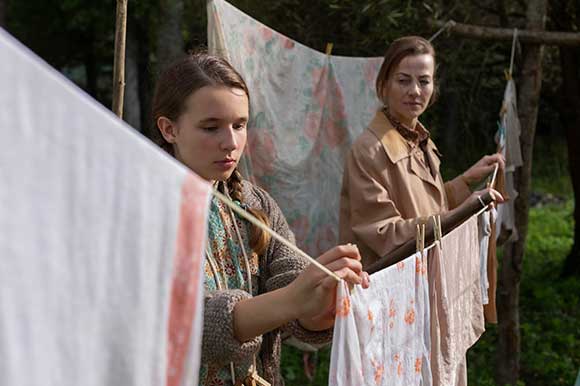 the list of the highest grossing works.
the list of the highest grossing works.
GRANTS AND NEW LEGISLATION
The National Film Centre is the main film institution in Latvia. It serves as the primary source of funding for local film production, coproduction projects and activities related to the film industry (film marketing, participation of films in festivals, etc.). The grants contests are held throughout the year.
The total state support for the film industry in 2020 was 8,396,965 EUR, including 7,175,326 EUR from the National Film Centre and 1,221,639 EUR from the Culture Capital Foundation of Latvia.
Total state support for the industry in 2019 was 6,397,379 EUR, including 5,462,576 EUR from the National Film Centre and 934,803 EUR from the Culture Capital Foundation of Latvia.
The National Film Centre supported the production of new domestic projects: six animated films, eight documentaries and five feature films, with the total amount of 1,768,327 EUR through the production financing grant schemes (annual production grants and a special programme for producing miniseries) in 2020. A total of 2,036,443 EUR was distributed to films already in production.
A total of 150,000 EUR was distributed to 16 projects in development: nine feature, four documentary and three animation projects.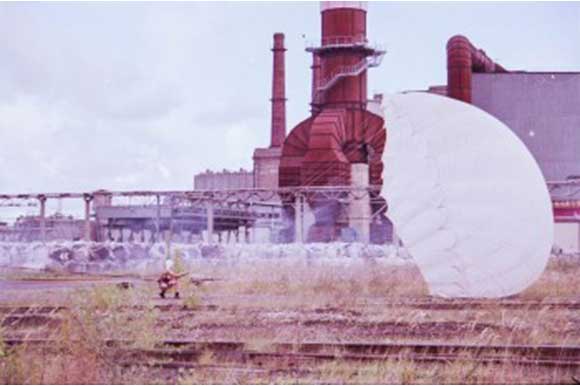
In the minority coproduction grants competition, 292,409 EUR went to six projects: two fiction, two animation (including a short animation) and two documentary projects.
In 2020, the total financing for the production of national films (excluding minority coproductions), in the amount of 3,804,770 EUR, was granted to 30 film projects including 10 feature films, eight animated films and 12 documentaries.
The Latvian director Viesturs Kairišs’ new project January / Janvāris received Eurimages support in the amount of 190,000 EUR in 2020. The film is a coproduction between Mistrus Media (Latvia), Artbox (Lithuania) and Staron Film (Poland).
In 2020 the Riga Film Fund, which offers a cash rebate of up to 25% of all production costs, approved co-financing agreements for a total amount of 634,617 EUR, supporting five servicing projects and one minority coproduction with production companies from Estonia, Germany, Poland, Denmark and Cyprus.
Latvia has a range of diverse filmmaking locations, including medieval architecture, Art Nouveau architecture and 19th century wooden architecture, therefore urban as well 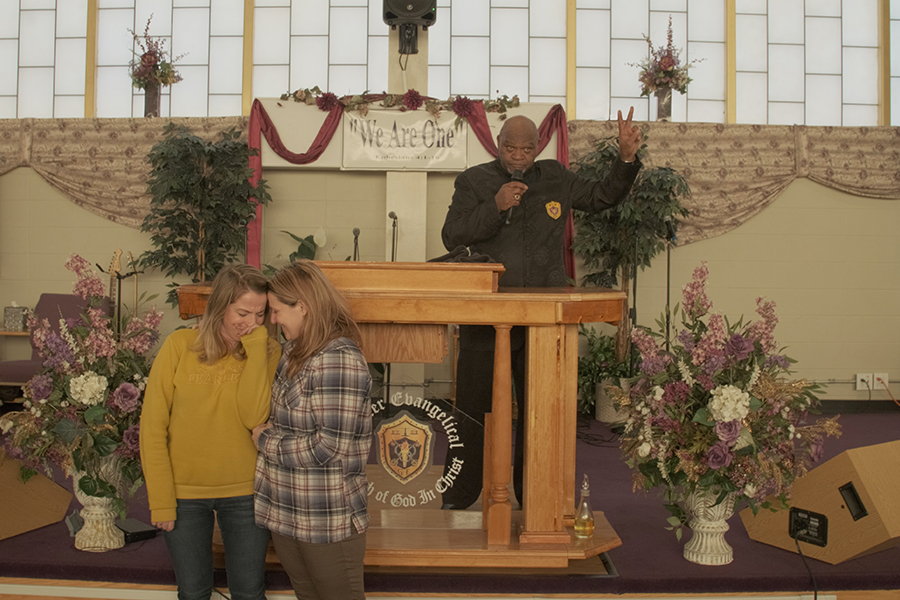 as natural locations in Latvia are able to double for many European places.
as natural locations in Latvia are able to double for many European places.
Latvia is also home to The Cinevilla Film Studio, located 50 km from the national capital of Riga and providing opportunities for shooting, as well as its own hotel.
The Latvian Film Producers Association with its approximately 30 members represents the most important film production companies in Latvia. The Latvian Filmmakers Union, which was established in 1962, also represents local filmmakers. An important role in the region is played by the Films Service Producers Association, whose members include, among others, the Latvian Film Angels Studio, the Baltic Pines film studio and Ego Media. These studios have vast experience in handling foreign productions shooting in Latvia.
TV
The leading broadcaster in Latvia is the commercial company TV3 Group. It provides Free-TV and Pay-TV, and it also operates several radio stations, the largest AVOD portal (TV3 Play), a digital advertising platform, as well as several news and entertainment portals.
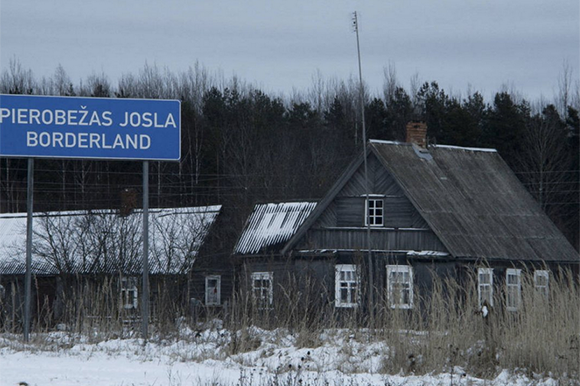 Commercial platforms Shortcut, LMT straume, and Helio, apart from TV channels, offer film streaming, including domestic premieres. TET, which is the operator of Helio and Shortcut, produced in 2020 the original miniseries Bezvēsts pazudušās, which was released in the autumn of 2020.
Commercial platforms Shortcut, LMT straume, and Helio, apart from TV channels, offer film streaming, including domestic premieres. TET, which is the operator of Helio and Shortcut, produced in 2020 the original miniseries Bezvēsts pazudušās, which was released in the autumn of 2020.
The public broadcaster LTV is funded by the state and through advertising revenues. The Latvian Television organises an annual documentary film project The Code of Latvia / Latvijas kods, focusing on stories about contemporary life in Latvia. The project is implemented in cooperation and with the support of the National Film Centre of Latvia and the Culture Capital Foundation. New episodes are presented every year in November as a part of Latvian Independence Day celebrations.
In 2020 LTV produced and from October broadcast the miniseries Project: Divorce / Projekts: Šķiršanās, a contemporary family drama in 10 episodes, as well as the comedy series of six episodes Seriously? / Nopietni?, which was broadcast from November 2020.
CONTACTS:
NATIONAL FILM CENTRE OF LATVIA
Peitavas 10, Riga, Latvia, LV-1050
Phone: +371 7358878
Fax: +371 7358877
This email address is being protected from spambots. You need JavaScript enabled to view it.
www.nkc.lv
Director: Dita Rietuma
RIGA FILM FUND
Phone: +371 6703 7659
This email address is being protected from spambots. You need JavaScript enabled to view it.
www.filmriga.lv
CULTURE CAPITAL FOUNDATION
Phone: +371 6750 3177
This email address is being protected from spambots. You need JavaScript enabled to view it.
www.kkf.lv
LATVIAN FILM PRODUCERS ASSOCIATION
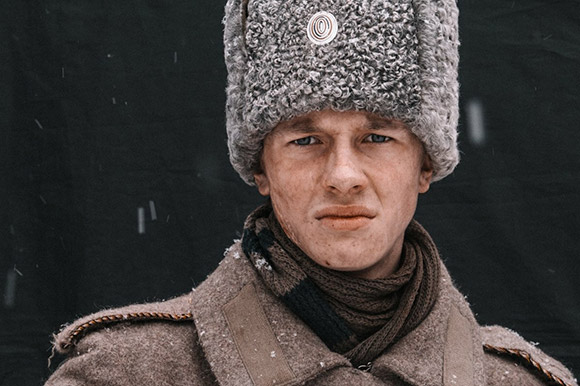 President: Aija Berzina
President: Aija Berzina
This email address is being protected from spambots. You need JavaScript enabled to view it.
Mobile: +371 26466014
LATVIAN FILMMAKERS UNION
Chairman: Ieva Romanova
Elizabetes Str.49, Riga
LV-1010, Latvia
Mobile: +371 29696874
This email address is being protected from spambots. You need JavaScript enabled to view it., This email address is being protected from spambots. You need JavaScript enabled to view it.
FILM SERVICE PRODUCERS ASSOCIATION OF LATVIA
Kr. Valdemara 33-10, Riga, LV-1010, Latvia
Phone: +371 67331921
Mobile: +371 25666698
This email address is being protected from spambots. You need JavaScript enabled to view it.
www.filmservice.lv
MINISTRY OF CULTURE
Phone: +371 6707 8137
This email address is being protected from spambots. You need JavaScript enabled to view it.
www.km.gov.lv
Report by Zane Balčus (2021)
Sources: Film Riga, the National Film Centre of Latvia, the Riga Film Fund, the Latvian Television, TV3 Group
Poland
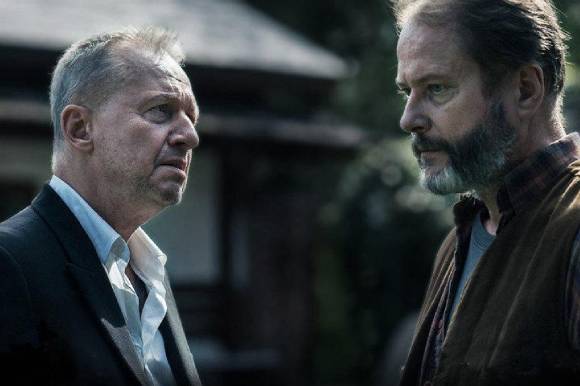 MARKET ANALYSIS 2020
MARKET ANALYSIS 2020
WARSAW: The year 2020 was successful for Polish cinema abroad despite the difficult circumstances. A number of prestigious awards and nominations consolidated the strong position of Polish cinematography. Several local and international productions used the 30% cash rebate. The film community was put to a test by the Coronavirus pandemic, but it was able to organise itself with the support from the Polish Film Institute and other Polish film institutions, and to navigate in the pandemic crisis.
PRODUCTION
Poland produced over 30 feature films in 2020, most of them supported by the Polish Film Institute (PISF). A total of 23 feature film projects received support, with the biggest grants of 1.07 m EUR / 5.93 m PLN going to Biała Odwaga, a new drama from Marcin Koszałka, produced by Balapolis, and 1.1 m EUR / 5.1 m PLN to Pani od polskiego by Radosław Piwowarski, produced by WFDiF. Both films started shooting in 2020.
The Peasants / Chłopi directed by Dorota Kobiela and based on the Nobel prize winning novel by Władysław Stanisław Reymont started production in the spring of 2020. This new project from BreakThru Films animation studio, known for Loving Vincent and Peter and the Wolf, received 863,343 EUR / 4 m PLN of funding from PISF. The film will be realised in the painting animation technique, which was highly praised in Loving Vincent. The premiere is planned for 2022 and the film will be released in Poland by NEXT FILM.
In 2020 the Polish Film Institute supported nine minority coproductions, of which the biggest grant of 431,671 EUR / 2 m PLN was received by Zone of Interest, directed by Johnathan Glazer with Extreme Emotions Bis as the Polish coproducer. The upcoming Holocaust drama produced by Studio A24 (UK) will be shot in Poland with the involvement of Polish talent in 2021. The shoot was planned for 2020, but was postponed due to the COVID-19 pandemic.
The Brutalist directed by Brady Corbet and coproduced by Madants received the same amount of funding. The production started in Poland in January 2021. The Brutalist is an American/Polish coproduction between Andrew Lauren Productions (USA), Three Six Zero Bookstreet Pictures (USA), Killer Films (USA) and Madants (Poland).
Oleg Sentsov’s new drama Rhino / Nosorożec received 232,558 EUR / 1 m PLN from the Polish Film Institute. The Ukrainian director is once again teaming up with Warsaw-based Apple Film Production, coproducing with Arthouse Traffic (Ukraine) and Cry Cinema (Ukraine), which is a company founded by Oleg Sentsov in 2008. The shoot for the film launched in the Ukraine in July 2020.
In 2020 the Polish Film Institute also supported seven microbudget productions directed by first or second time directors, granting 128,418 EUR / 595,000 PLN to each project. The planned 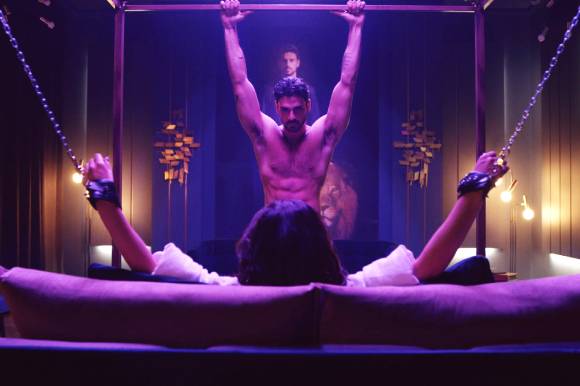 budgets of all of them are 151,077 EUR / 700,000 PLN.
budgets of all of them are 151,077 EUR / 700,000 PLN.
Seven productions received funding from the Polish-German Coproduction Fund. The biggest grant of 93,200 EUR went to The Delegation by Asaf Saban, coproduced by In Good Company GmbH and Koi Studio. Currently in production, The Delegation follows Israeli teenagers on a school trip to concentration camps and memorials around Poland.
COVID-19 GOVERNMENT SUPPORT
In March 2020, in response to the epidemic threat and the dramatic situation in which Polish cinematography found itself, the Director of the Polish Film Institute Radosław Śmigulski appointed a task force to deal with the crisis in the film industry. This crisis team included representatives of various film circles. The Director also published an appeal in connection with the state of epidemic emergency introduced by the government. The production of films and series was temporarily interrupted or suspended.
On the other hand, the amount of the grant funds in the Project Development programme was increased. The crisis group agreed on the need to extend the period of financing promises already granted by PISF up to three years. The producers were obliged to distribute long films supported by PISF in cinemas and they could choose to launch them online during the pandemic.
All domestic films had their classification switched to "difficult", which would allow to raise the threshold for public aid to 70%. PISF would also implement a quick information path on awarded grants. Producers who receive a grant for development would get a bigger amount of funds in the first installment, which was increased to 70% of the grant.
The closure of cinemas in March 2020 sparked a #supportPolishcinemas campaign, during which viewers could support local cinemas all over Poland by purchasing voucher tickets online.
A financial support programme for filmmakers was established on 7 April 2020 by the Director of the Polish Film Institute in cooperation with the Polish Filmmakers Association, the Polish Film Academy, the Guild of Polish Directors and the Association of Artists for Rzeczpospolita.
The Polish Filmmakers Association (SFP) allocated over 6.5 m EUR / 30 m PLN as part of an assistance package to support filmmakers during the COVID-19 pandemic crisis. This is one of the largest amounts of support provided by creative organisations to its members during the pandemic.
In May 2020 the Polish Producers Alliance (KIPA) and Netflix launched a fund to assist the employees of the Polish film and television industry who were most affected by the suspension of work due to the COVID-19 pandemic. Netflix donated 551,000 EUR / 2.5 m PLN towards the fund's launch. The fund was designed to support the crews in the television and film sectors who were most affected by the pandemic, who often work as freelancers and were now unable to be professionally active due to the almost complete halt of work on film sets.
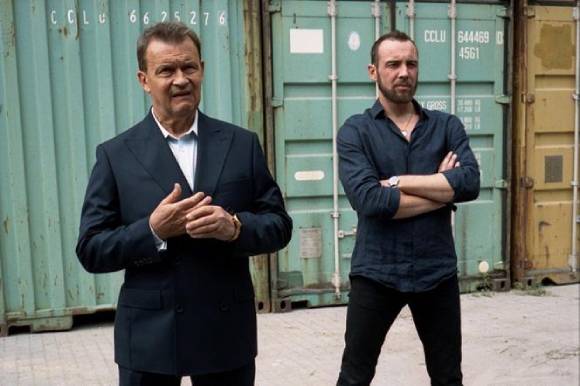 Also in May 2020, the Studio Cinemas Association launched the largest virtual cinema in Poland www.mojeekino.pl, uniting 47 studio cinemas, where not only film screenings, but also meetings with filmmakers and film festivals took place.
Also in May 2020, the Studio Cinemas Association launched the largest virtual cinema in Poland www.mojeekino.pl, uniting 47 studio cinemas, where not only film screenings, but also meetings with filmmakers and film festivals took place.
In October 2020 the Polish Government approved an additional 27 m EUR / 120 m PLN in support from the COVID-19 Counteracting Fund to help the cinema industry.
DISTRIBUTION
The leading distributors of mainstream cinema on the Polish market are Kino Świat, SPI International Polska, NEXT FILM and Monolith Films. The art house market is dominated by Gutek Film and Against Gravity.
Similar to 2019, two films by Patryk Vega boasted major success on markets outside Poland. Vega's look at the scandalous world of soccer entitled Bad Boy was released by Kino Świat in Poland in February 2020, while in March 2020 Kinostar Filmverleih released it in Germany, the Netherlands, the UK, Belgium, Sweden, Austria, Switzerland and France.
Patryk Vega's action crime drama The Noose / Pętla, based on a true story about a second generation cop who has designs on becoming a detective but descends into bribery, corruption and addiction, opened in Poland on 4 September 2020 distributed by Kino Świat. In the same month Kinostar Filmverleih released it in the UK, Lithuania and Germany. Both films were produced by the director’s company Vega Investments.
Corpus Christi by Jan Komasa follows Vega's films in terms of the number of territories where it went into distribution. The drama nominated for the Academy Award in the International Feature Film category was sold to over 45 territories and it was released in 2020 in the Netherlands (IMG Films), France (Bodega Films), Norway (Fidalgo), Romania (Bad Unicorn), Portugal (Films4You), Slovakia (ASFK), the Czech Republic (ACFK), Iceland (Bíó Paradís) and Lithuania (Europos kinas).
Corpus Christi also received four nominations for the European Film Awards in the following categories: Best Film, Best Screenplay (Mateusz Pacewicz), Best Actor (Bartosz Bielenia) and Best Director (Jan Komasa). The film was produced by Aurum Film in coproduction with Canal+, WFS Walter Film Studio, the Podkarpackie Regional Film Fund and Les Contes Modernes  (France), with support from the Polish Film Institute.
(France), with support from the Polish Film Institute.
Agnieszka Holland also received an EFA nomination for Charlatan / Šarlatán, produced by Marlene Film Production in coproduction with Film and Music Entertainment (Ireland), Madants (Poland), Furia Film (Slovakia), the Czech Television, Barrandov Studio and RTVS. The film opened in the Czech Republic and Slovakia on 20 August 2020, distributed by UPI, and in October 2020 in Poland (Gutek Film) and Hungary (Mozinet). In November 2020 the film opened in New Zealand, distributed by Vendetta Films.
The biggest Polish domestic distribution success in 2020 was 365 Days directed by Barbara Białowąs and Tomasz Mandes, based on a script by Tomasz Klimala, who adapted a bestselling series written by Blanka Lipińska. The film was produced by Ekipa in coproduction with TVN and NEXT FILM.
365 Days opened in Polish cinemas on 7 February 2020, distributed by NEXT FILM, and had 1.64 m admissions. The film also had a broad UK distribution, where it premiered on 14 February 2020, cashing in 7.9 EUR in both markets.
365 Days was also the most-watched film on Netflix around the world in 2020. 365 Days received Amber Lions for the most popular film of the year at the 45th Polish Film Festival in Gdynia.
VOD DISTRIBUTION
On-demand services are becoming more and more popular in Poland. According to the November IRCenter report Multiscreening 7. World of New Media, as much as 74% of Poles paid for VoD content in 2020, while in 2019 the percentage was only 44. In the 15-24 age group, the percentage is 82%. The most preferred (by 57%) form of using on-demand services currently are monthly packages, especially popular in the above-mentioned age group.
According to the Mediapanel study by Gemius / PBI, in 2020 Netflix became a clear leader, with nearly seven million users in Poland in January 2021. CDA Premium, owned by the listed CDA company, came second among the most popular streaming services in Poland, with 3.87 m users. CDA Premium is also the only company in the forefront that is not backed by any major media groups. The top 5 most popular services in Poland also include www.vod.pl, TVP VOD and HBO GO.
In May 2020 CANAL+ launched its own VOD platform available on Android and iOS devices. The service offer is divided into four paid packages and one free package for all users.
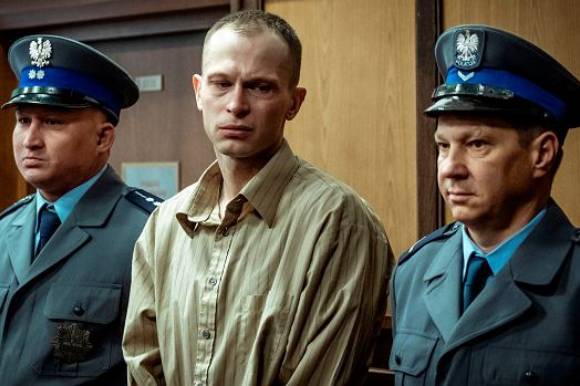 In December 2020 a new platform Fixmojo debuted on the Polish market, offering classic films and TV series.
In December 2020 a new platform Fixmojo debuted on the Polish market, offering classic films and TV series.
EXHIBITION AND BOX OFFICE
Poland has over 1,200 cinema screens, of which 80% are operated by big multiplex cinema chains. The leading companies are Cinema City with over 30 multiplex cinemas, 380 screens and 110,000 seats, Helios with 42 cinemas and 49,000 seats, and Multikino with 48 cinemas and 70,000 seats. Additionally, there are more than 600 one-screen cinemas.
The good streak of the film distribution market in Poland was interrupted in 2020, due to the Coronavirus pandemic. The closings and re-openings of cinemas, the reduction of the number of seats to 50% and even to 25% in October 2020, the impossibility to plan advertising campaigns for films, postponed a large number of American titles or sent them directly to streaming, thus negatively affecting most of the key indicators.
In 2020 the cinema attendance in Poland was less than 30% of the attendance in 2019, which translated into a decrease from 60.9 m to 17.1 m admissions. The revenues amounted to less than 71.2 m EUR / 331 m PLN.
A total of 169 titles debuted in cinemas, which is practically half as many as in 2019. The average ticket price decreased slightly from 4.04 EUR / 18.78 PLN in 2019 to 3.94 EUR / 18.30 PLN in 2020.
Seven out of the ten most watched films were domestic productions. Among them, three surpassed 1 m admissions: the erotic thriller 365 days by Barbara Białowąs, produced by Ekipa in coproduction with TVN and NEXT FILM, and released by NEXT FILM on 7 February 2020 (1,639,390 admissions); Władysław Pasikowski’s Dogs 3, produced by Scorpio Studio and released by Kino Świat on 17 January 2020 (1,185,030 admissions), and the second film by Maciej Kawulski How I Became a Gangster. A True Story, produced commercially by NEXT FILM and Polsat, which opened on 3 January 2020 distributed by NEXT FILM (1,136,056 admissions).
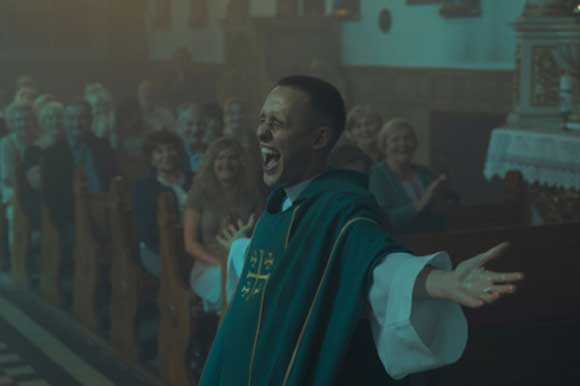 The comedy Mayday directed by Sam Akina and distributed by Kino Świat had 977,000 admissions. The next two positions are occupied by Jan Holoubek's debut feature 25 Years of Innocence. Tomek Komenda's Case, produced by TVN (711,762 admissions), and The Noose by Patryk Vega produced by Vega Investments (569,689 admissions). Both films were distributed by Kino Świat.
The comedy Mayday directed by Sam Akina and distributed by Kino Świat had 977,000 admissions. The next two positions are occupied by Jan Holoubek's debut feature 25 Years of Innocence. Tomek Komenda's Case, produced by TVN (711,762 admissions), and The Noose by Patryk Vega produced by Vega Investments (569,689 admissions). Both films were distributed by Kino Świat.
Zenek by Jan Hryniak, produced and distributed by TVP, had 507,719 admissions. The second half of the box office includes two animated films for children - Rascal with 568,436 admissions, and the US blockbuster Scooby-doo! with 444,933 admissions. The war drama 1917 came in 10th with 423,924 admissions.
GRANTS AND NEW LEGISLATION
The Polish Film Institute is the largest source of funding with additional funds coming from the television, a well-developed network of regional film funds, as well as private sources. The most frequent coproduction partners for Poland are Germany, France and the Czech Republic, with growing involvement of the Scandinavian countries, including Sweden and Denmark.
The average budget of a Polish production is approximately 930,000 – 1.1 m EUR / 4 - 4.5 m PLN.
In 2020 PISF granted over 18.3 EUR / 85 m PLN to 50 audiovisual projects as part of the cash rebate scheme. Among the co-financed projects there were 20 domestic productions, 14 international productions and 16 international coproductions. The total Polish budget for all projects (funds to be spent in Poland) is nearly 86.1 m EUR / 400 m PLN.
The 30% cash rebate incentives for filmmakers were introduced in February 2019 based on the Act of 9 November 2018 on financial support for audiovisual production. The system offers reimbursement of production costs incurred in Poland in the amount of up to 30% of Polish eligible expenses. It is a systemic solution whose primary task is to support audiovisual production in Poland. The funds come directly from the state budget, and the programme is managed by the Polish Film Institute.
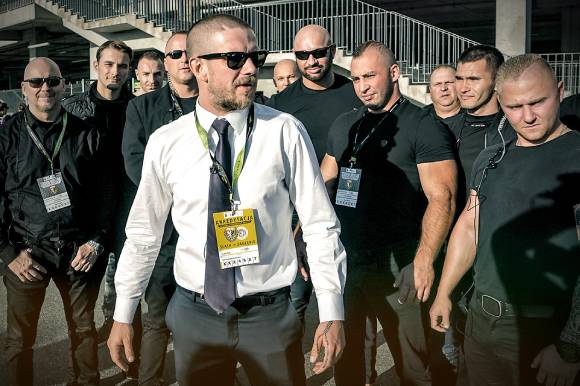 Click HERE for more information on Poland’s cash rebate.
Click HERE for more information on Poland’s cash rebate.
In July 2020 Poland introduced a levy for on-demand audiovisual media services as part of the anti-crisis shield 3.0. The levy amounts to 1.5 percent coming either from user fee income or ad revenue, whichever is higher for the individual business. The levy must be paid each quarter to the Polish Film Institute. Digital companies operating in Poland paid 1.986 m EUR / 8.92 m PLN in the first six months since the new VOD levy was introduced.
Poland has a well-developed network of regional film funds with 11 active funds: Łódź FF, Gdynia FF, Silesia FF, Lower Silesia FF, Poznań FF, Podkarpackie FF, Krakow FF, West Pomerania FF, Lublin FF, Mazovia FF and Warmia and Mazury Regional Film Fund.
The Polish Filmmakers Association (SFP) has over 1,700 members. The SFP is involved in the organisation of film events including festivals and major markets. Munk Studio – Polish Filmmakers Association, which operates within the structure of the SFP, produces short films and debut features made by young filmmakers. Polish producers are members of the Polish Producers Alliance (KIPA) established in November 2000 to protect “the economic and legal interests of the Polish audiovisual sector”. The Polish market also has a very active network of film commissions for the the Lower Silesia, Małopolska, Mazovia, Silesia and Podkarpackie voivodships, and in the cities of Łódź and Poznań.
TV
In 2020 the public broadcaster TVP took the first place among the most popular TV stations in the whole year. The average daily share of this channel decreased by 0.23% percent compared to 2019 and amounted to 9.66 percent of the market share.
 Polsat is the first runner-up and its share in the analysed period decreased by 15.21% to 8.34 percent. The third place belongs to TVP2. In 2020 the station’s share of the market amounted to 7.50%, after a decline compared to the same period in 2019. TVN took the next place with 7.49 percent (down by 11.42%). The total share of the so-called "big four" decreased from 36.26% in 2019 to 33.01% in 2020, which is the worst result for these key players in recorded history.
Polsat is the first runner-up and its share in the analysed period decreased by 15.21% to 8.34 percent. The third place belongs to TVP2. In 2020 the station’s share of the market amounted to 7.50%, after a decline compared to the same period in 2019. TVN took the next place with 7.49 percent (down by 11.42%). The total share of the so-called "big four" decreased from 36.26% in 2019 to 33.01% in 2020, which is the worst result for these key players in recorded history.
The year 2020 saw a rise of the news stations, with TVN24 coming 4th with 5.36% market share, followed by TVP INFO with 4.83%.
In November 2020 the public broadcaster TVP launched a new thematic channel TVP Dokument, presenting TVP’s own flagship documentary productions (available from January 2021), through Weekends with the BBC, productions in the genre of factual entertainment, premium films on the subjects of nature, travel, popular science and biographical courses.
CONTACTS:
POLISH FILM INSTITUTE
Kruczkowskiego 2
00-412 Warsaw, Poland
Phone: +48 22 10 26 454
www.pisf.pl
This email address is being protected from spambots. You need JavaScript enabled to view it.
POLISH FILMMAKERS ASSOCIATION
Pańska 85
00-834 Warsaw, Poland
Phone.: (+ 48) 22 512 41 00
This email address is being protected from spambots. You need JavaScript enabled to view it.
www.sfp.org.pl
FILM COMMISSION POLAND
Kruczkowskiego 2
00-412 Warszawa
Phone: +48 22 102 64 42
This email address is being protected from spambots. You need JavaScript enabled to view it.
 FILM COMMISSIONS:
FILM COMMISSIONS:
WROCŁAW FILM COMMISSION
50-020 Wrocław, Piłsudskiego 64A, Poland
Phone: +48 71 793 79 72, +48 601 384 194
Fax: +48 71 79 400 88
This email address is being protected from spambots. You need JavaScript enabled to view it.
http://wroclawfilmcommission.pl/
ŁÓDŹ FILM COMMISSION
90-022 Łódź, Targowa 1/3, Poland
Phone: 48 42 600 61 33
This email address is being protected from spambots. You need JavaScript enabled to view it.
This email address is being protected from spambots. You need JavaScript enabled to view it.
www.lodzfilmcommission.com
KRAKOW FILM COMMISSION
31-311 Kraków, Wygrana 2, Poland
Phone: +48 12 354 25 53
This email address is being protected from spambots. You need JavaScript enabled to view it.
www.film-commission.pl
MAZOVIA WARSAW FILM COMMISSION
00-139 Warsaw, Elektoralna 12, Poland
Phone: +48 22 586 42 58
This email address is being protected from spambots. You need JavaScript enabled to view it.
www.mwfc.pl
POZNAN FILM COMMISSION
61-767 Poznan, Masztalarska 8, Poland
Phone: +48 61 8528833 ext. 35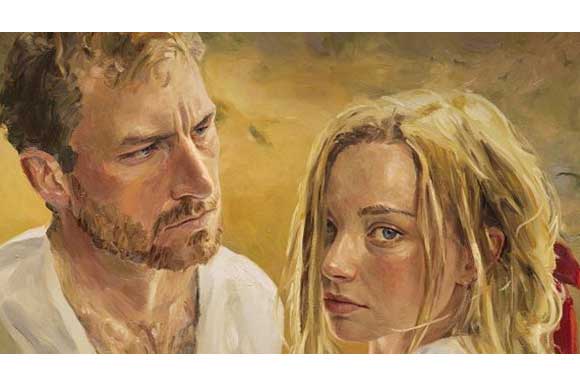 Fax: +48 61 8528835
Fax: +48 61 8528835
This email address is being protected from spambots. You need JavaScript enabled to view it.
www.poznanfilmcommission.pl
SILESIA FILM COMMISSION
40-008 Katowice, Górnicza 5, Poland
Phone: +48 698 353 147
This email address is being protected from spambots. You need JavaScript enabled to view it.
PODKARPACKIE FILM COMMISSION
35-002 Rzeszów, Okrzei 7, Poland
Phone: +48 721 288 004
This email address is being protected from spambots. You need JavaScript enabled to view it.
www.podkarpackiefilmcommission.pl
KUJAWY POMORZE FILM OFFICE
Phone: +48 881 232 234
This email address is being protected from spambots. You need JavaScript enabled to view it.
www.film.kujawsko-pomorskie.pl
Report by Katarzyna Grynienko (2021)
Sources: the Polish Film Institute, the National Broadcasting Chamber

